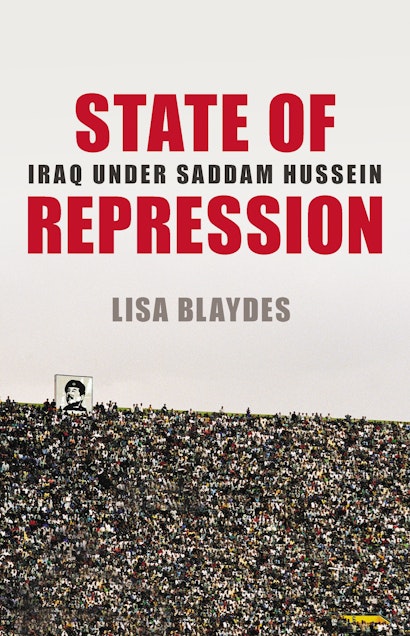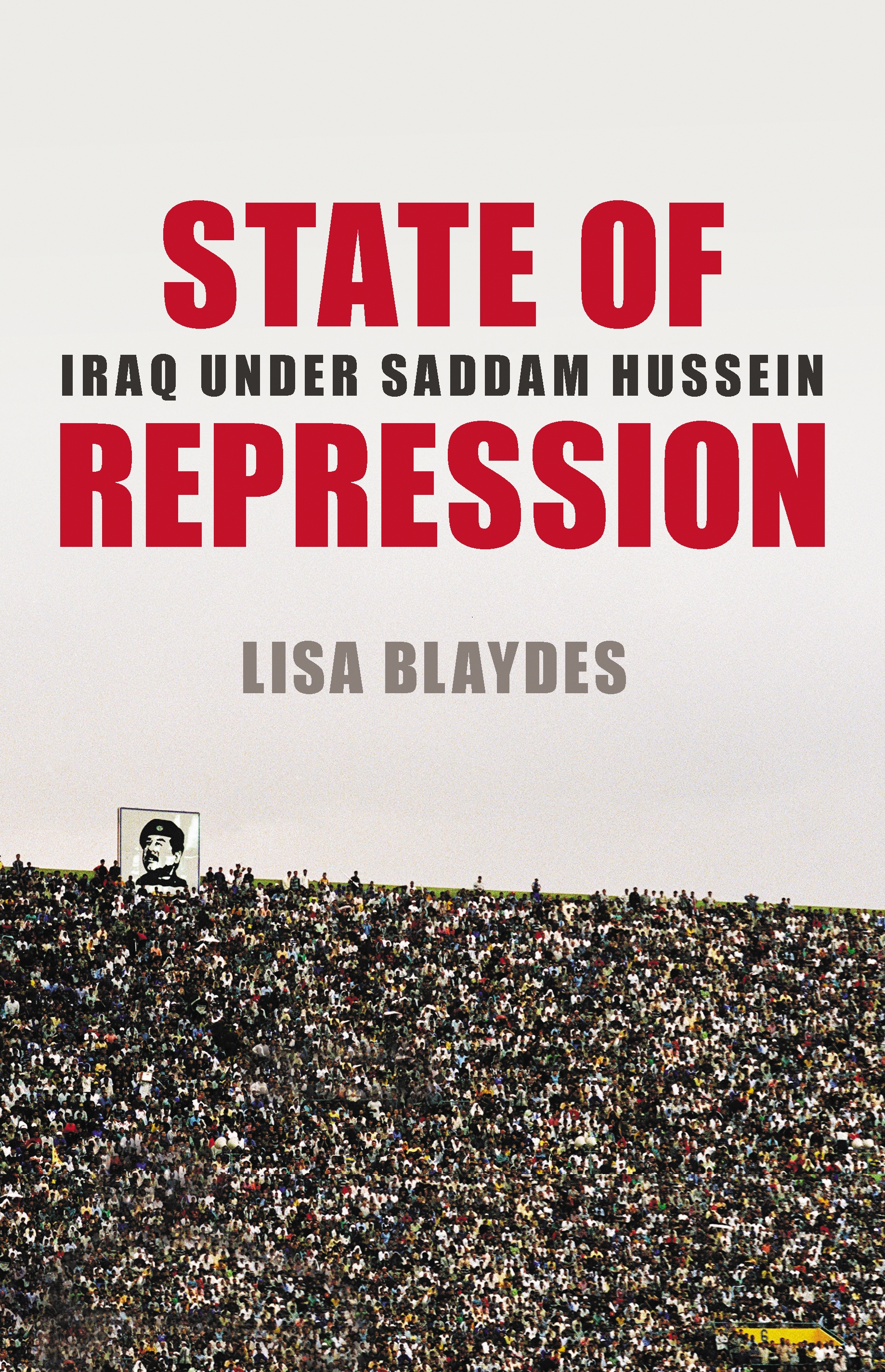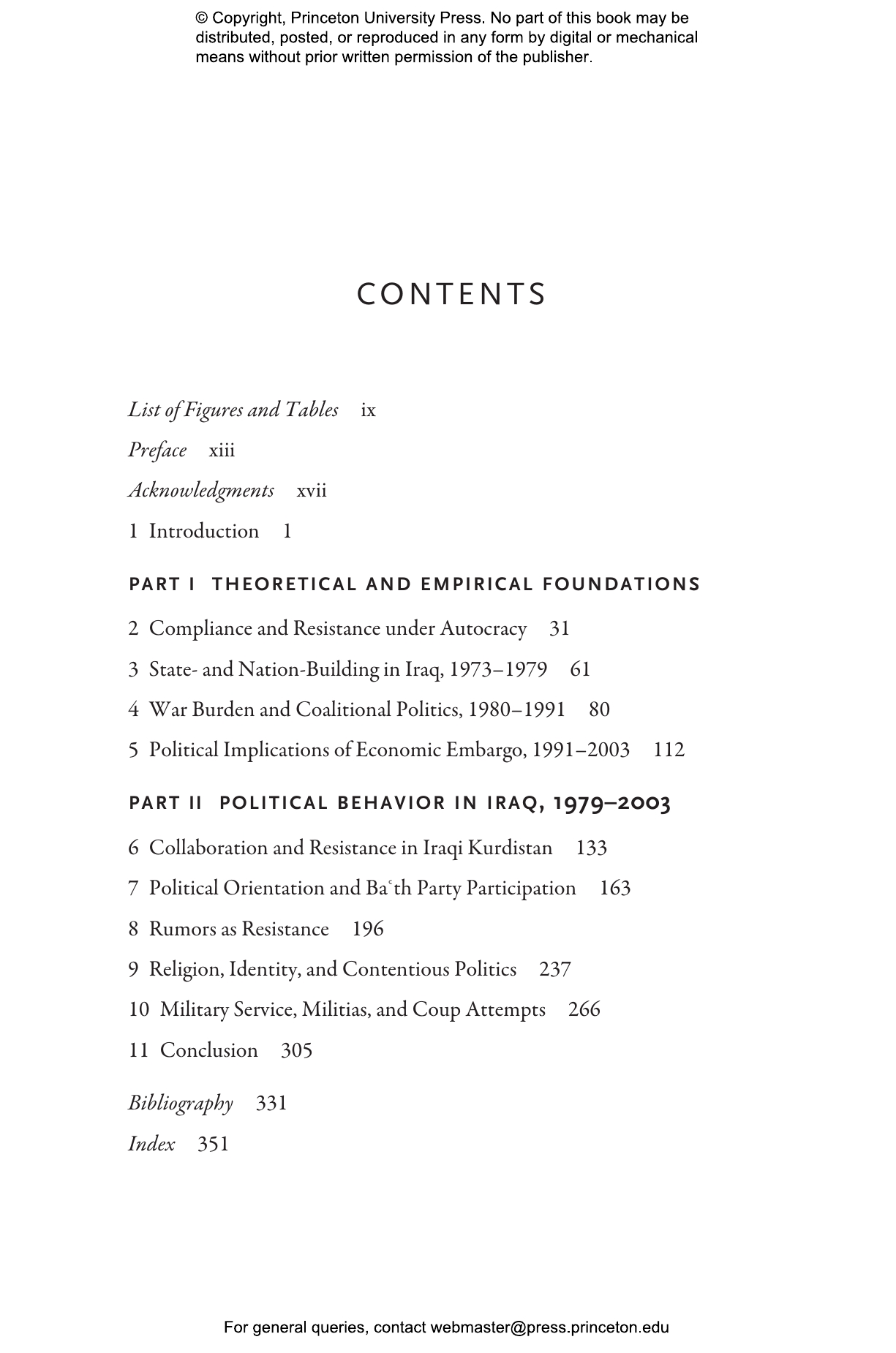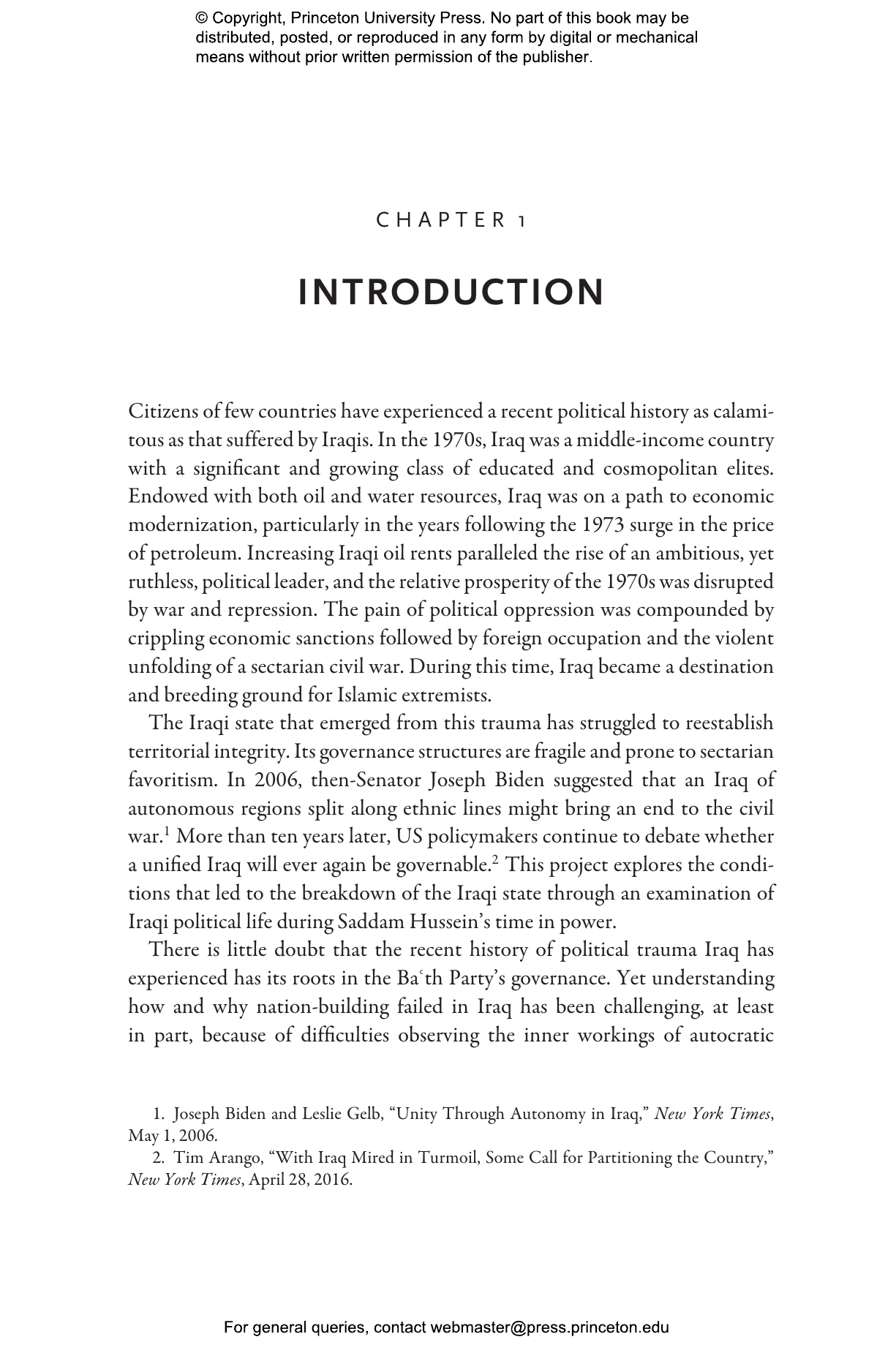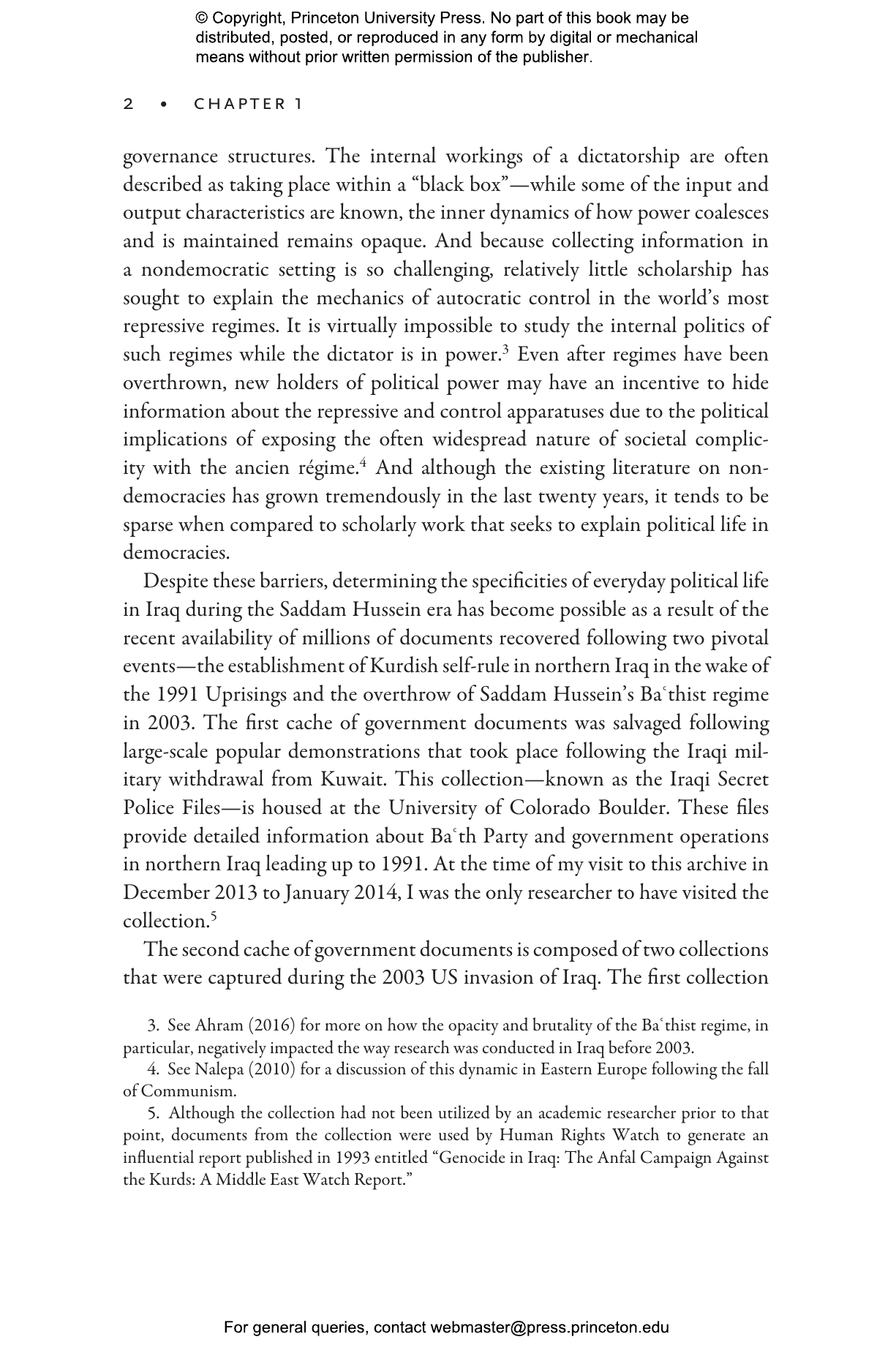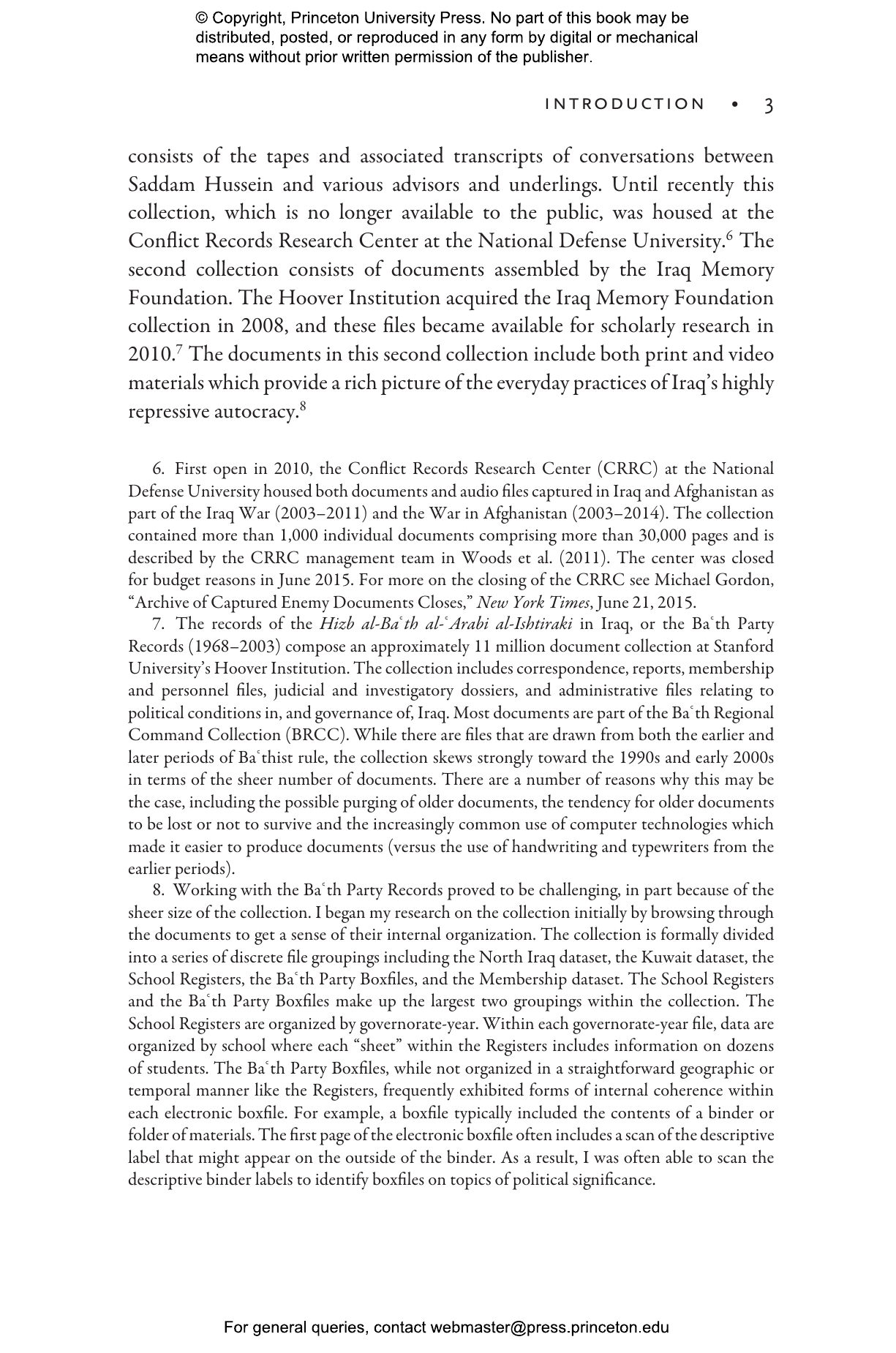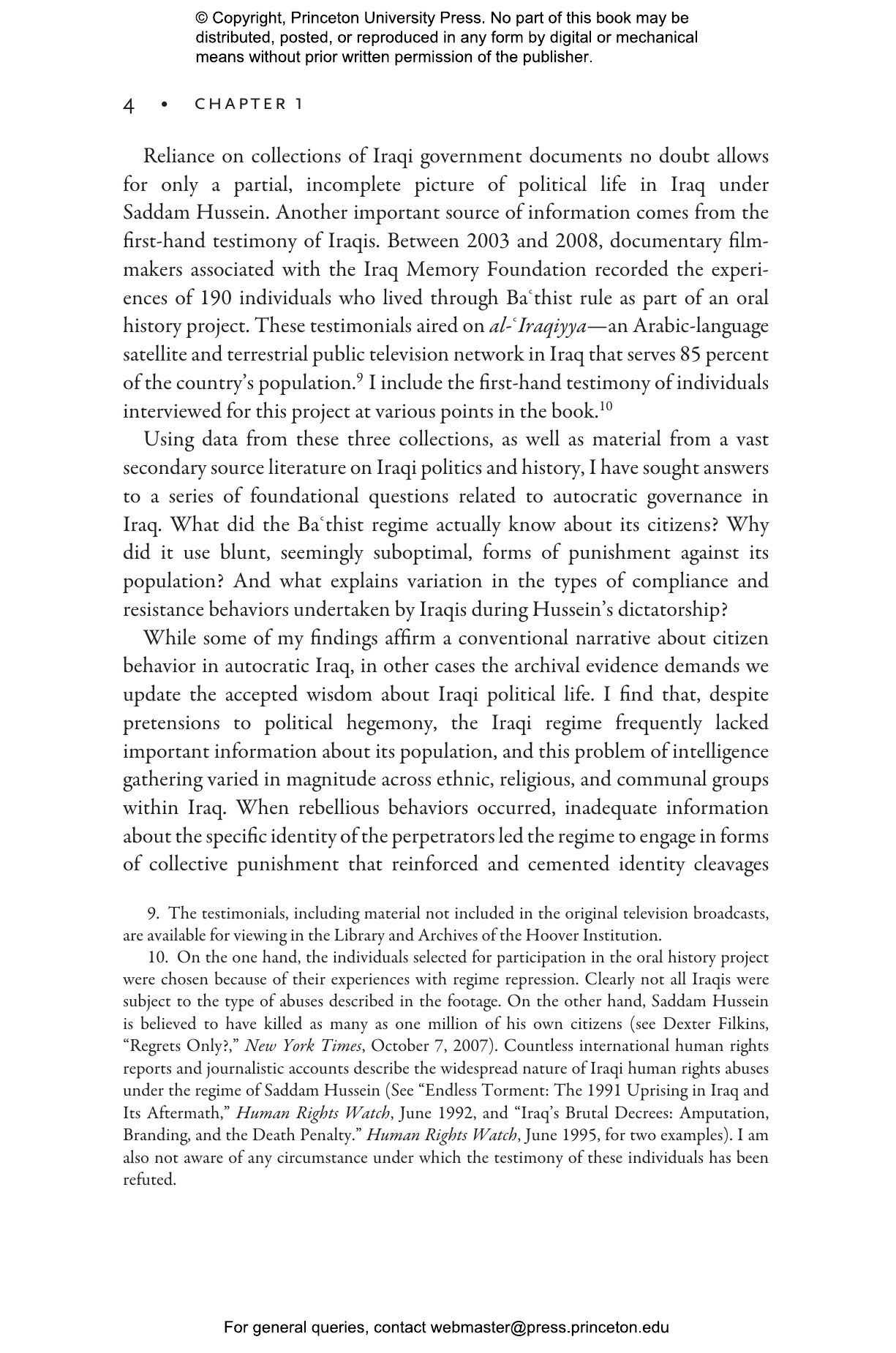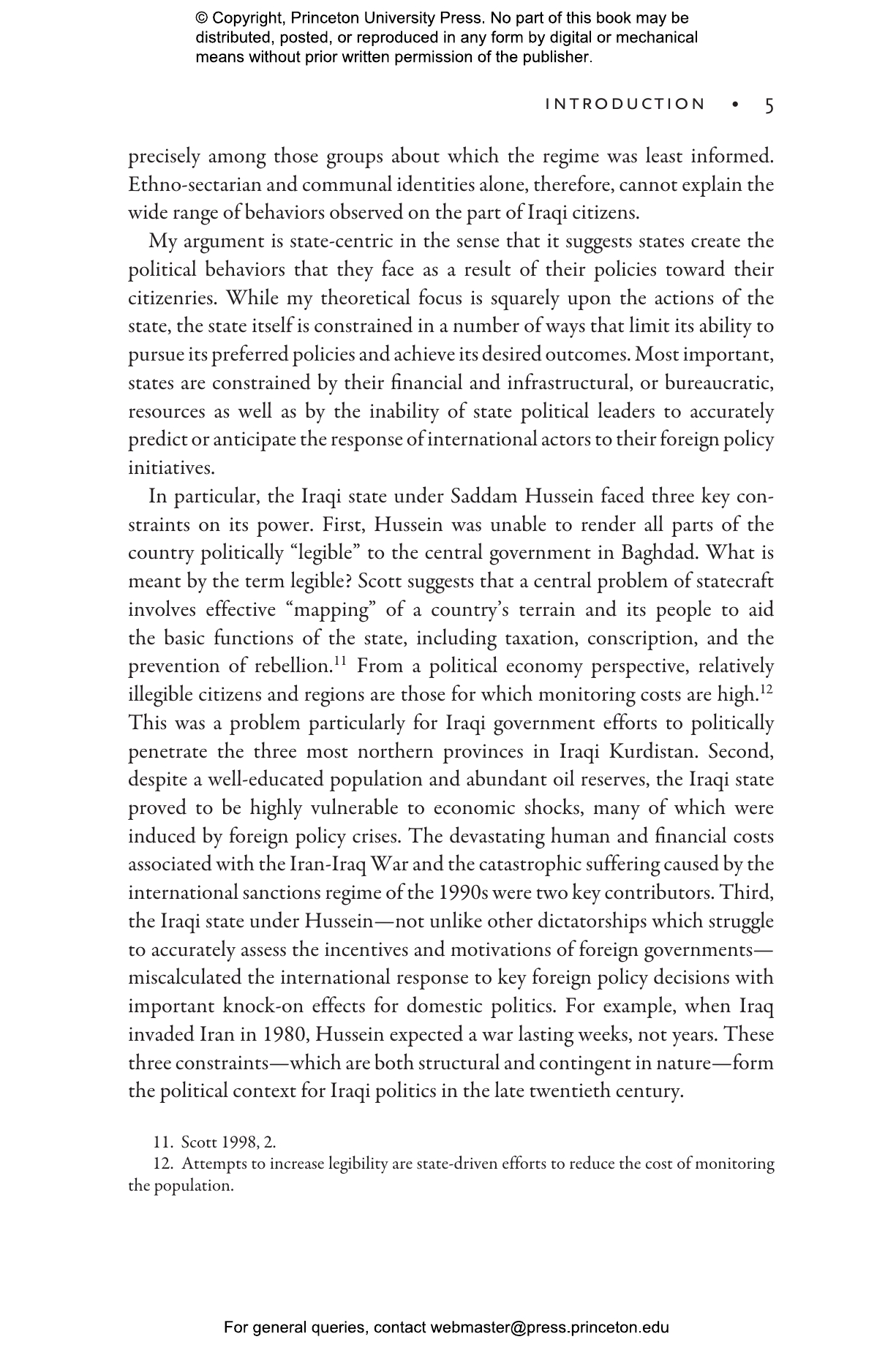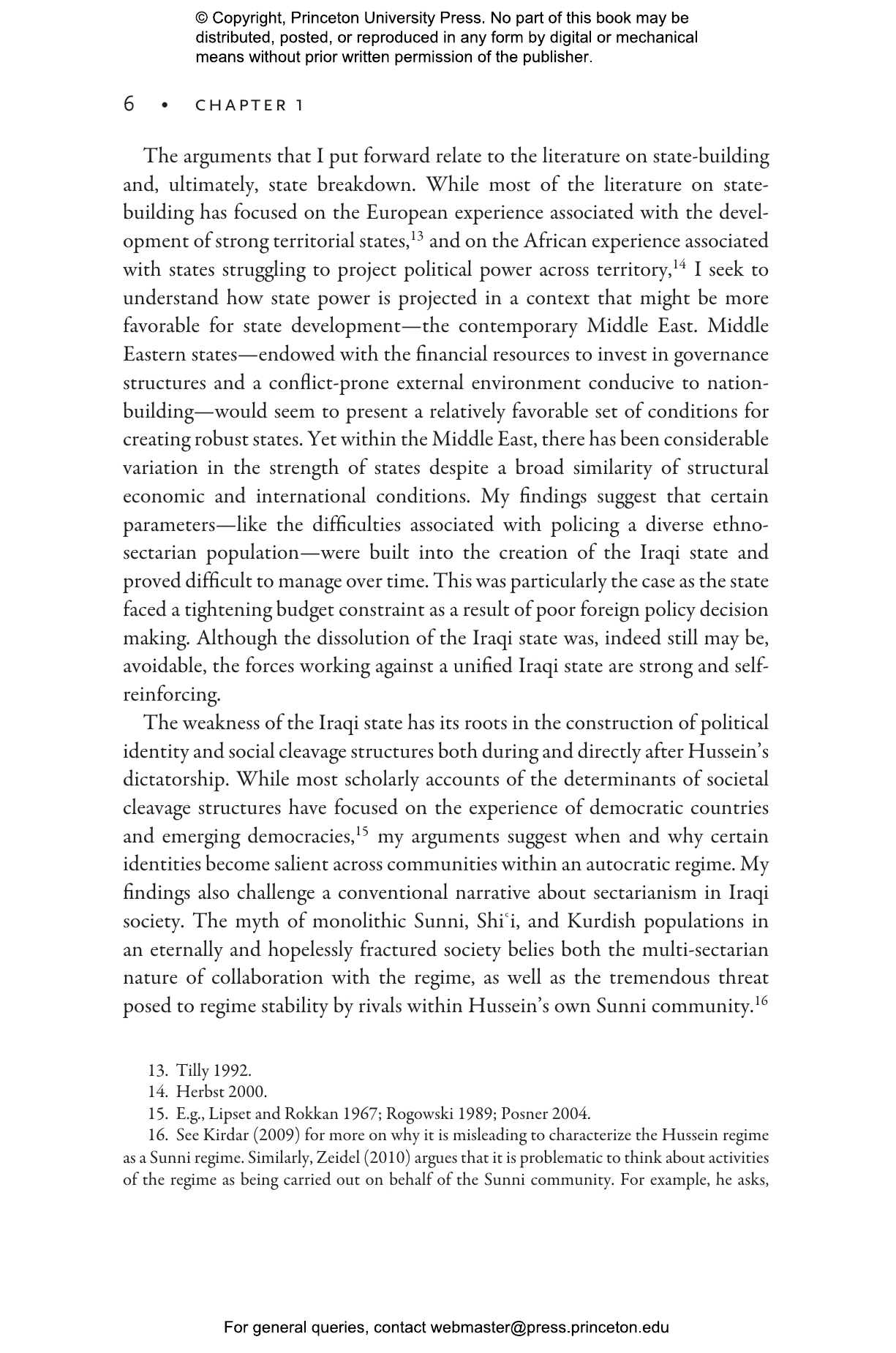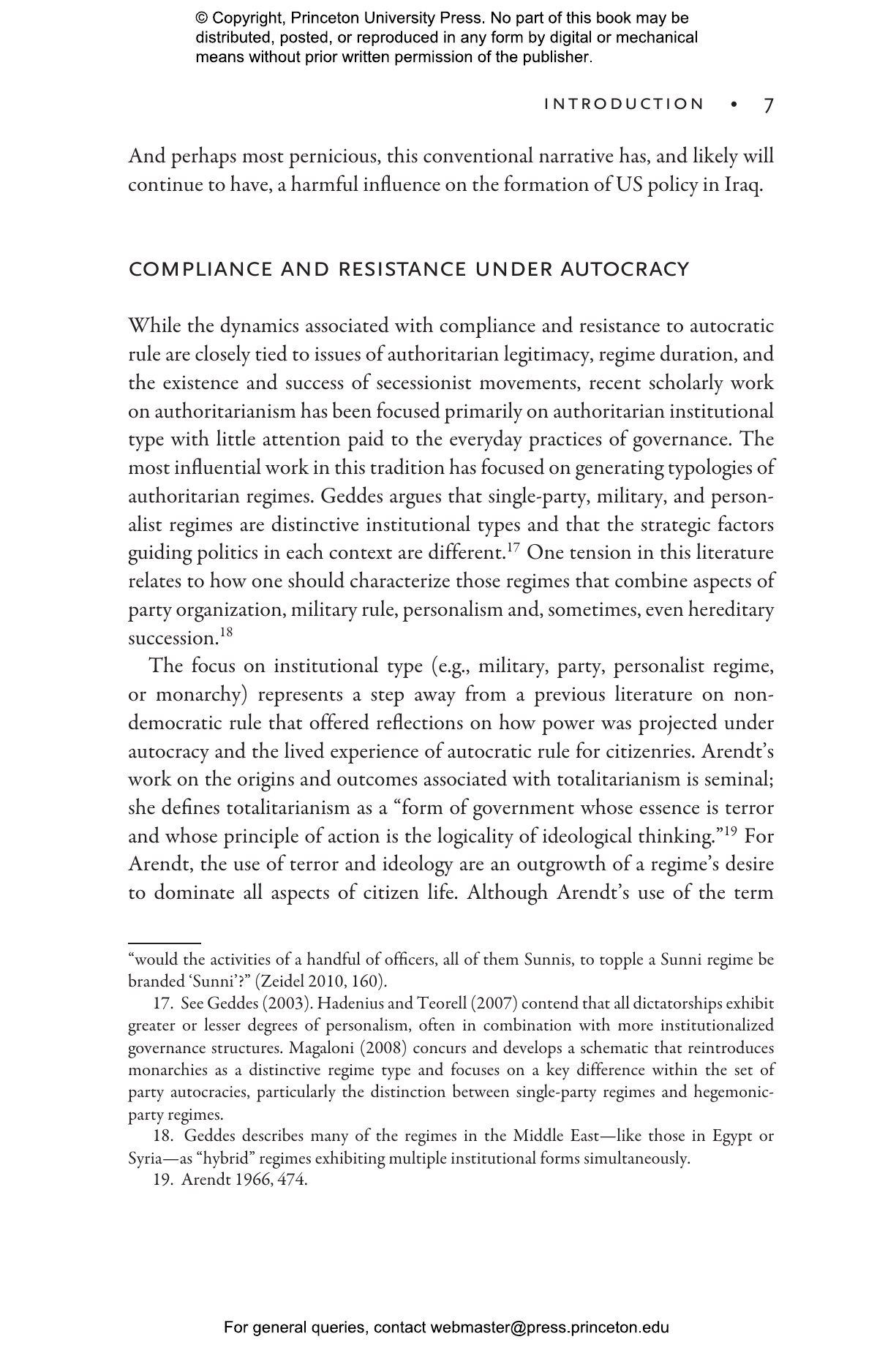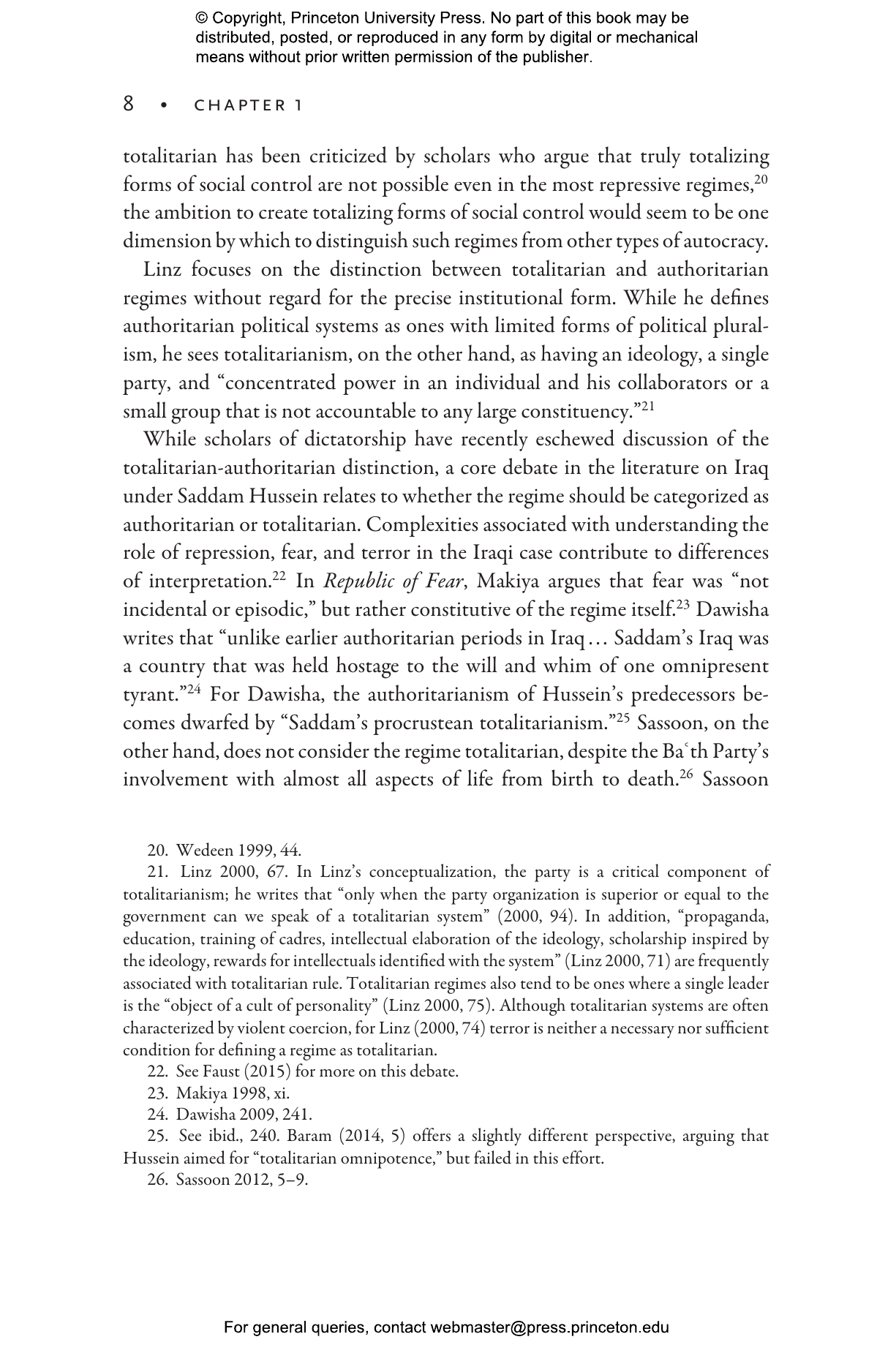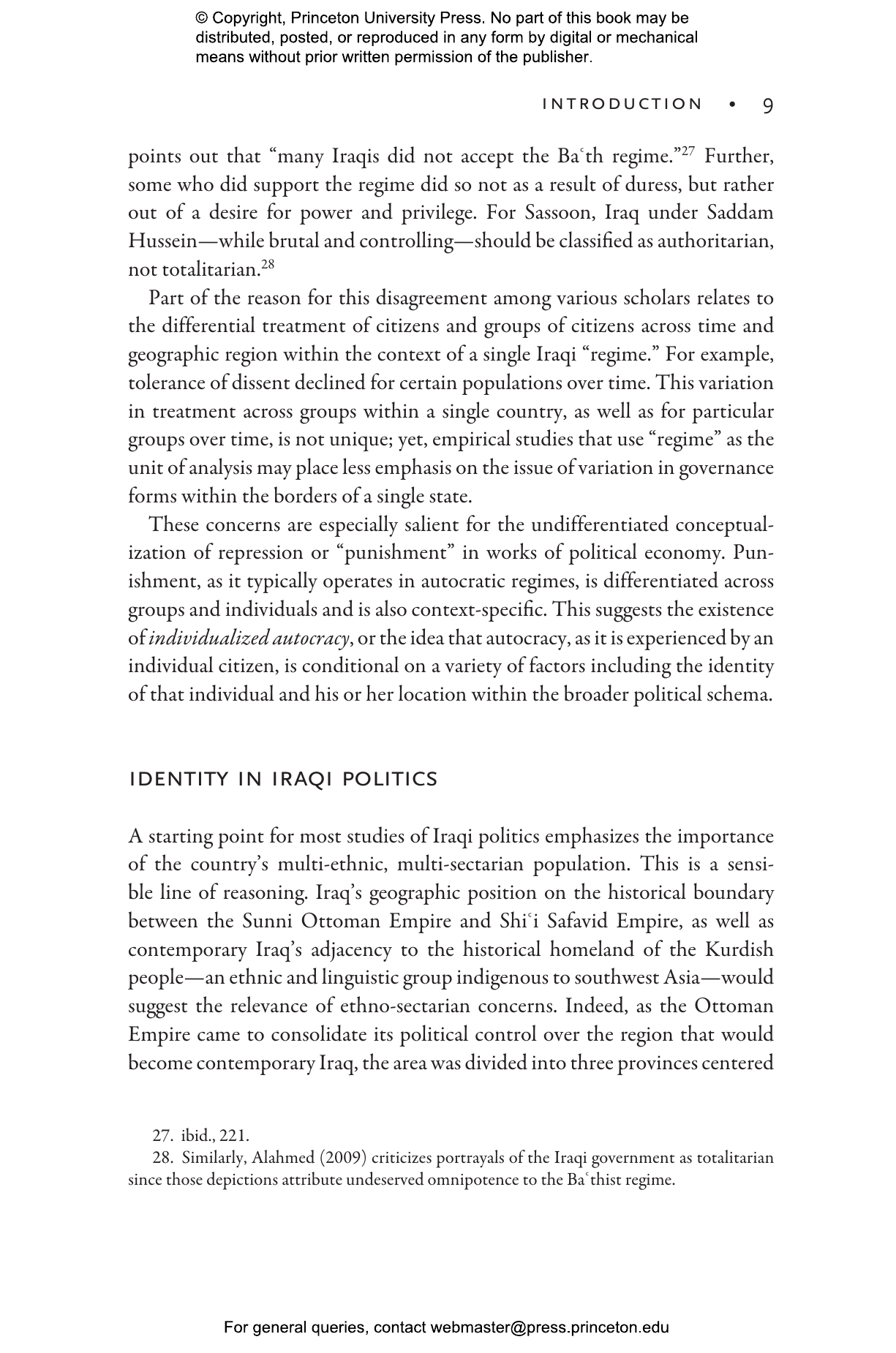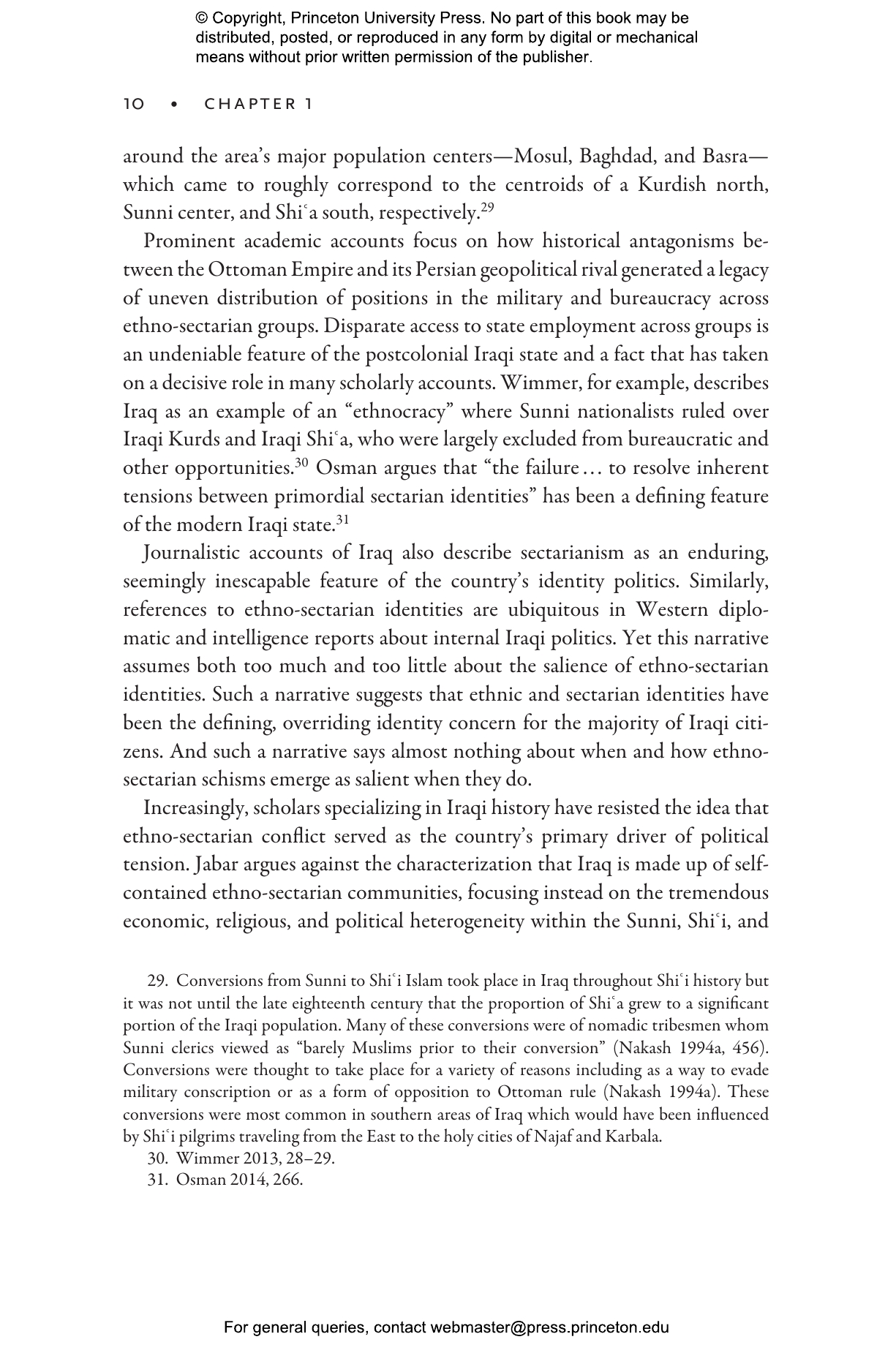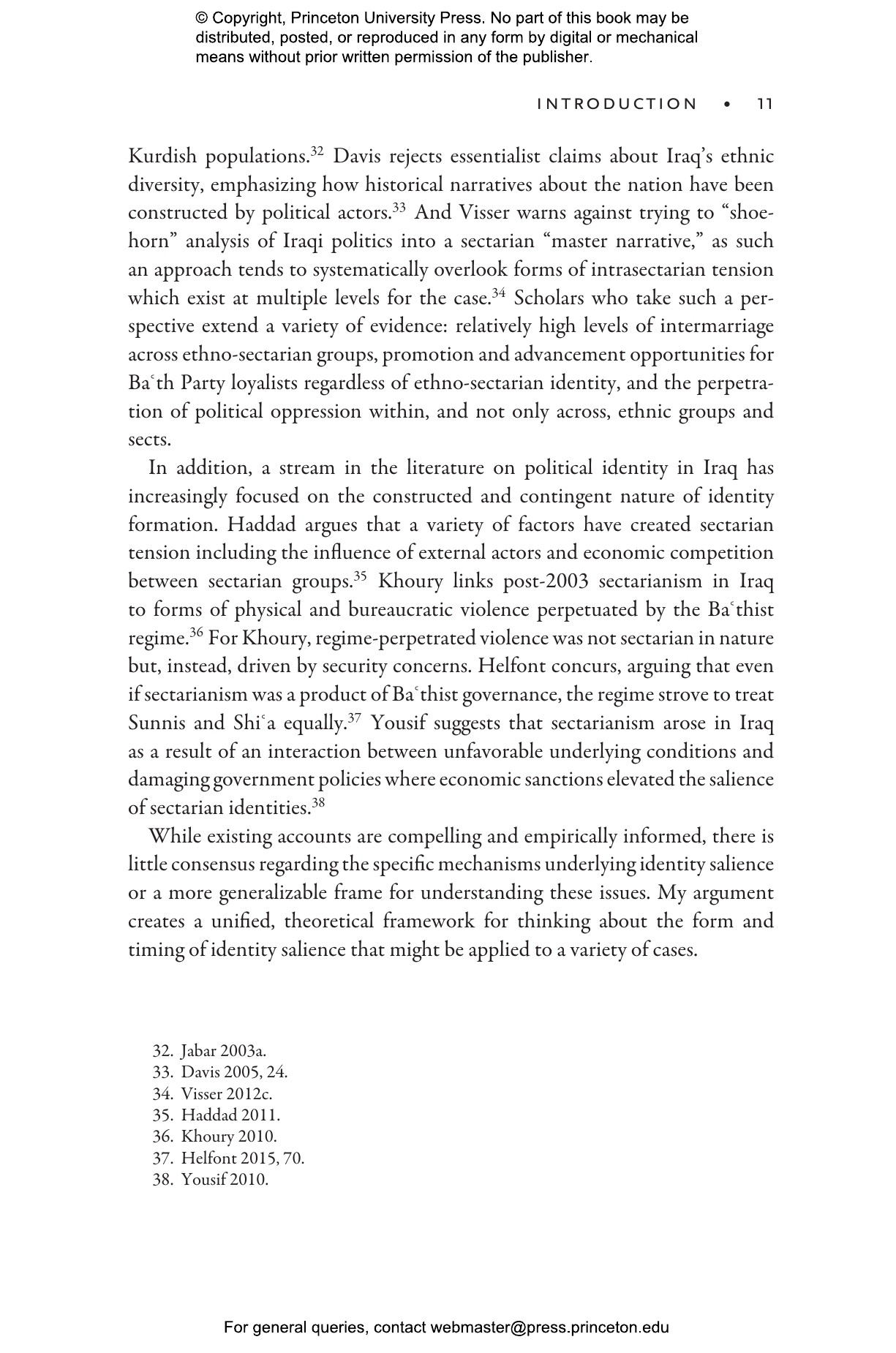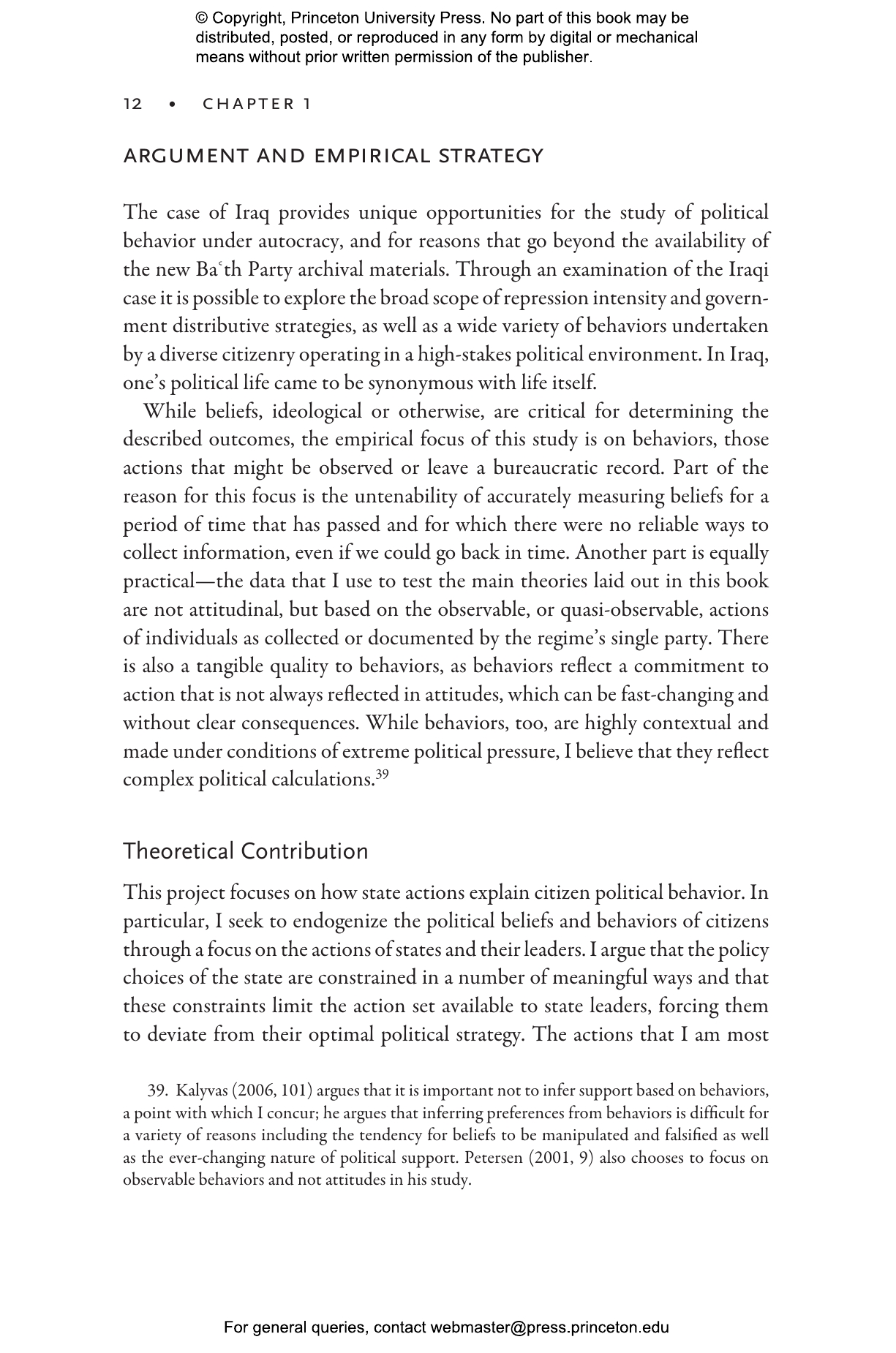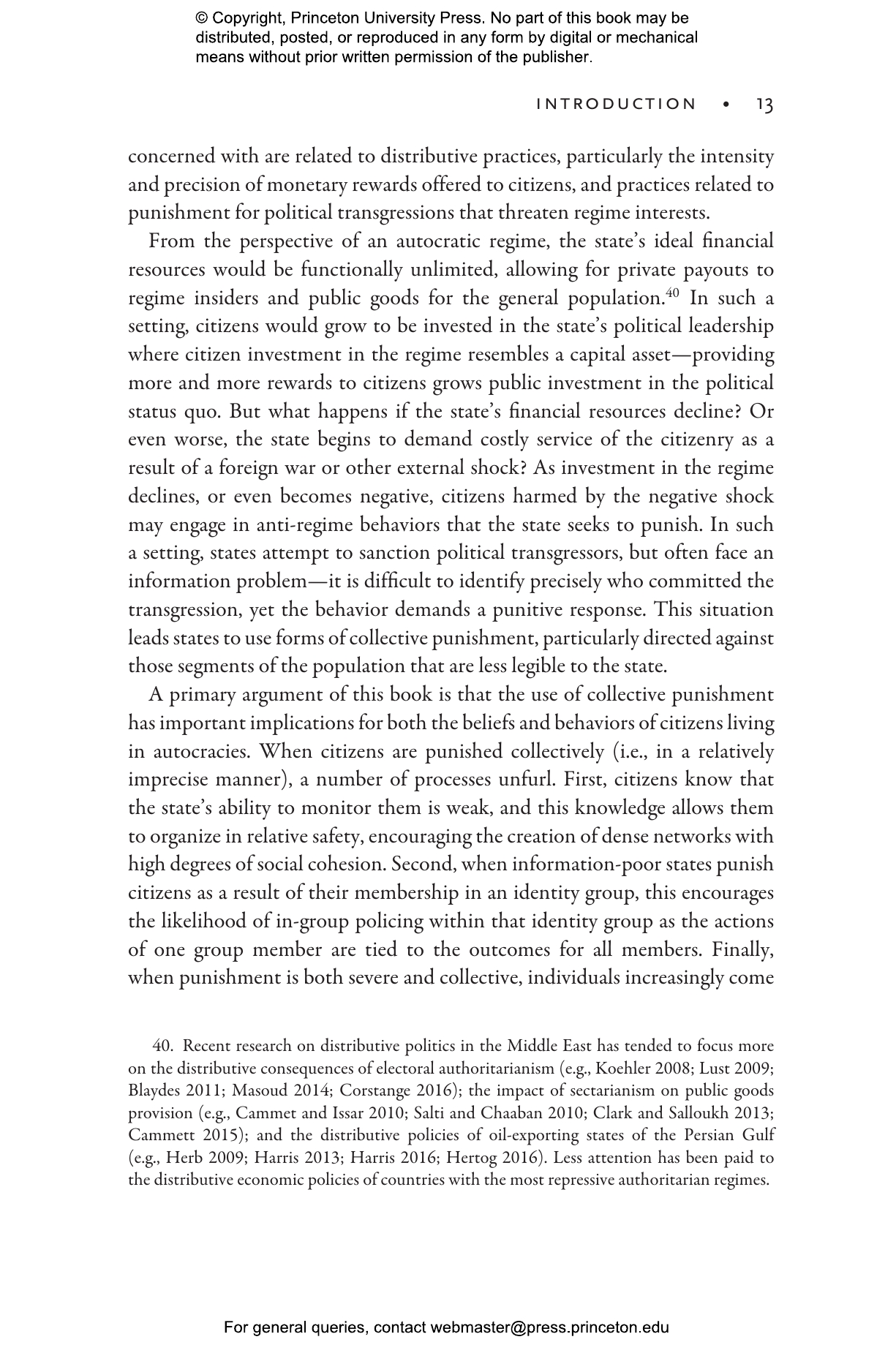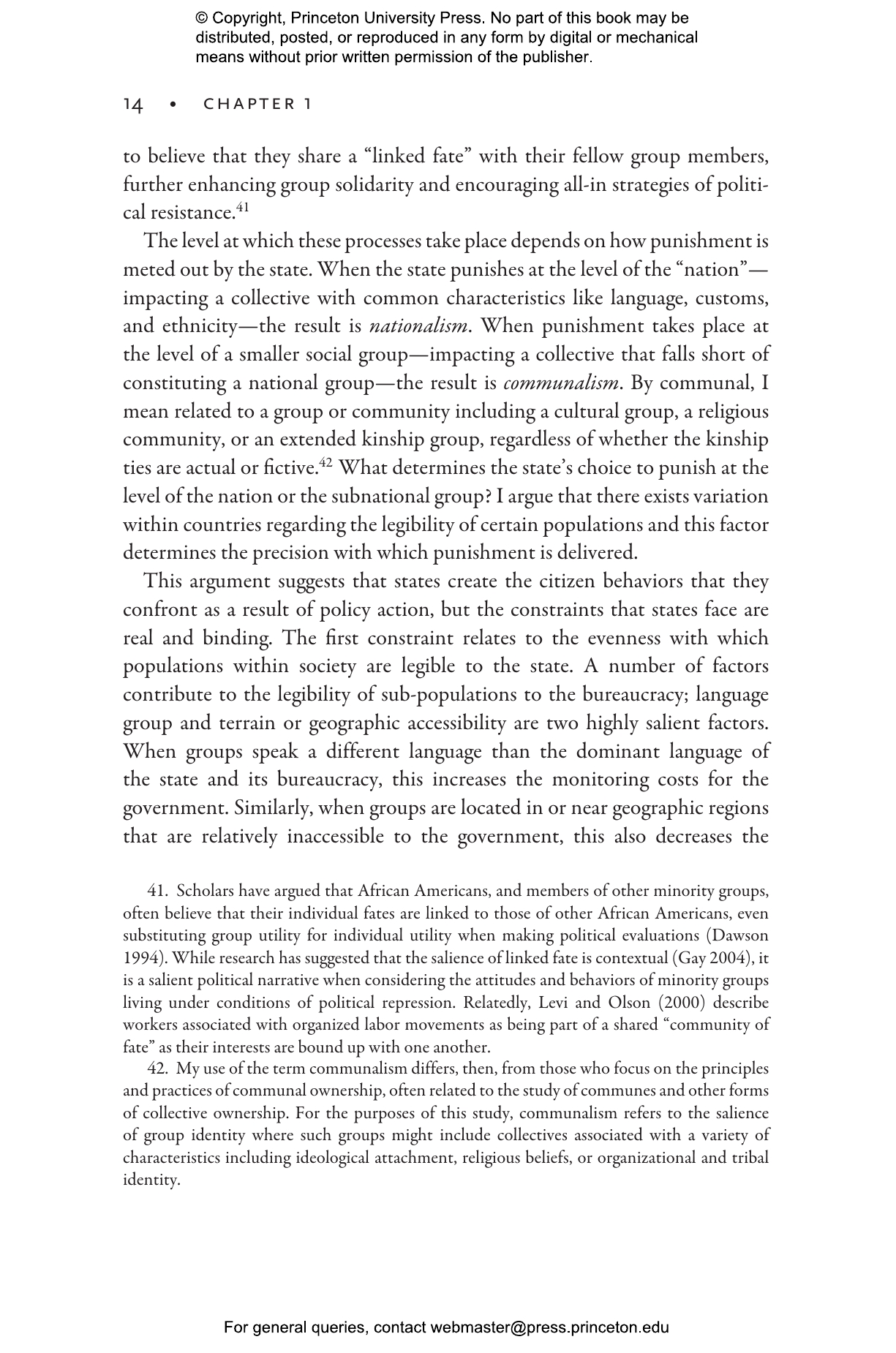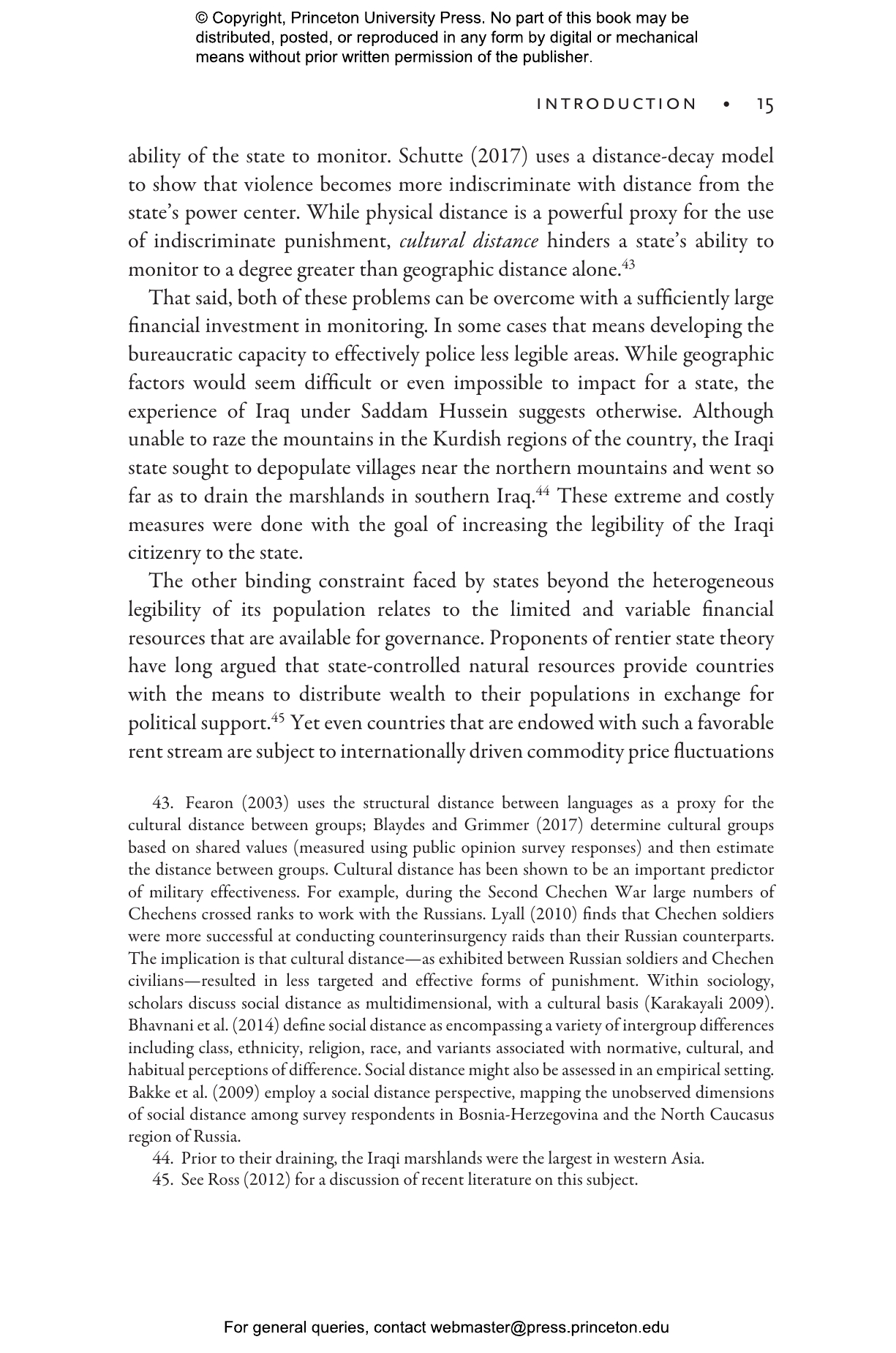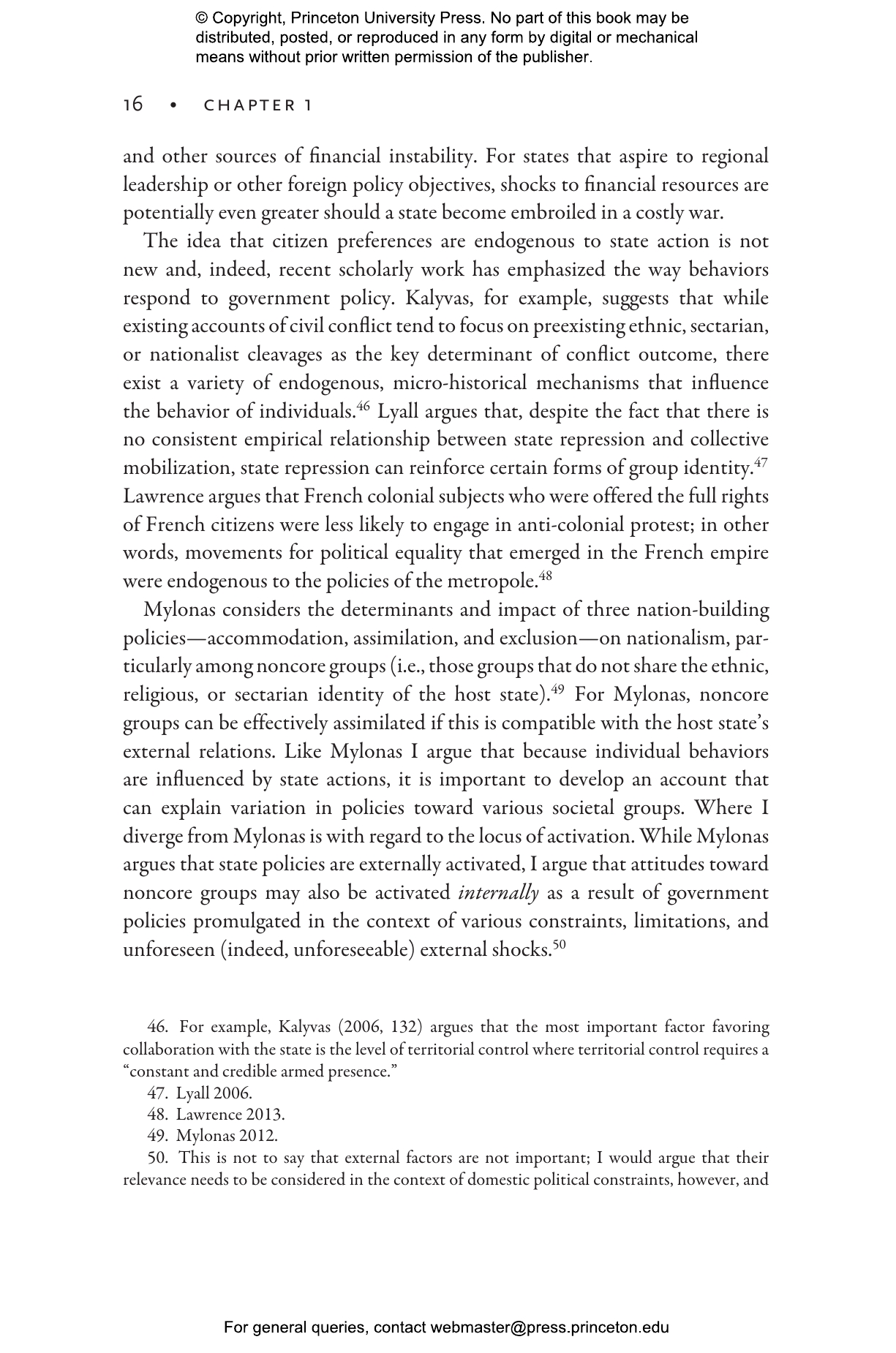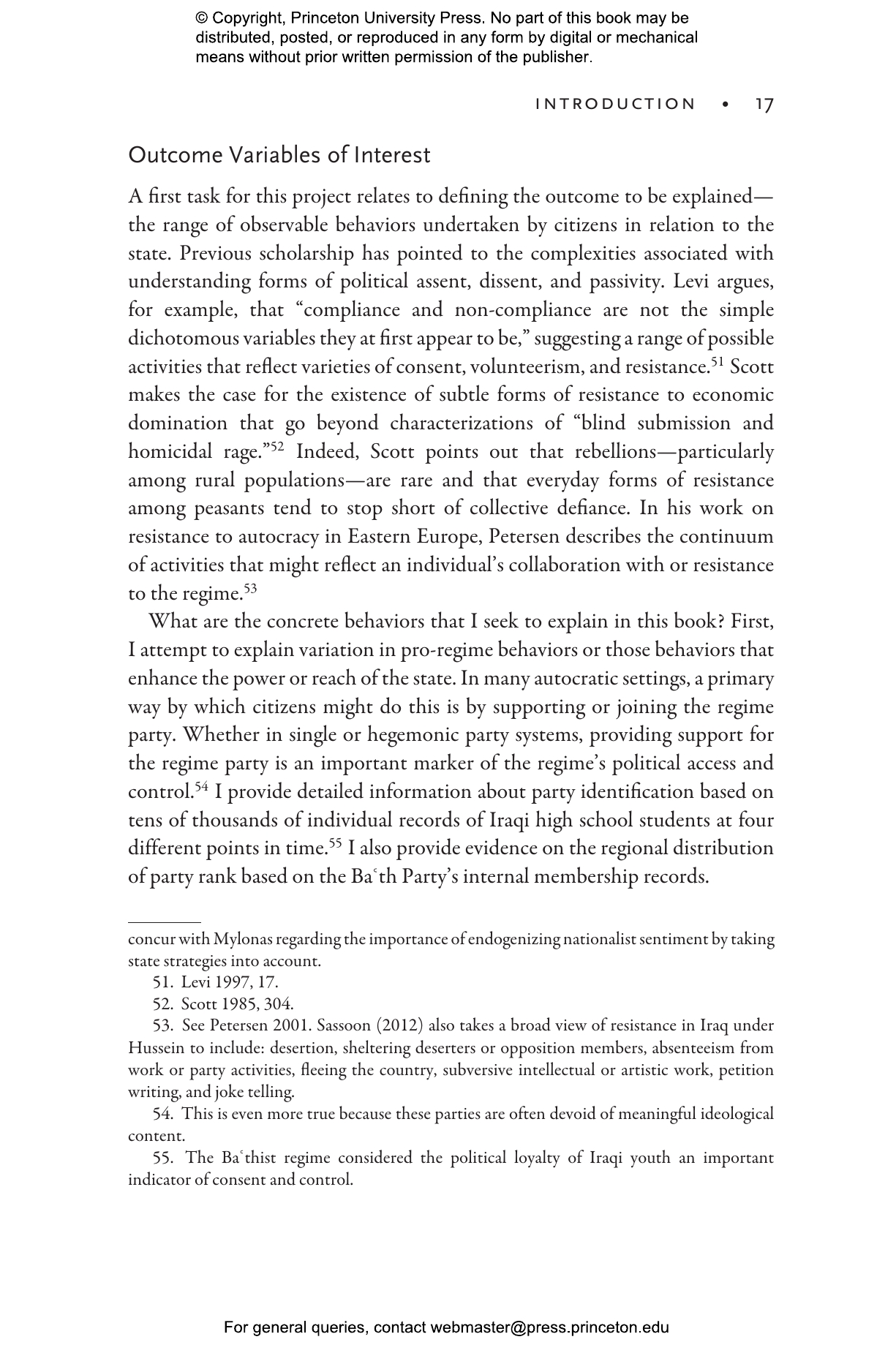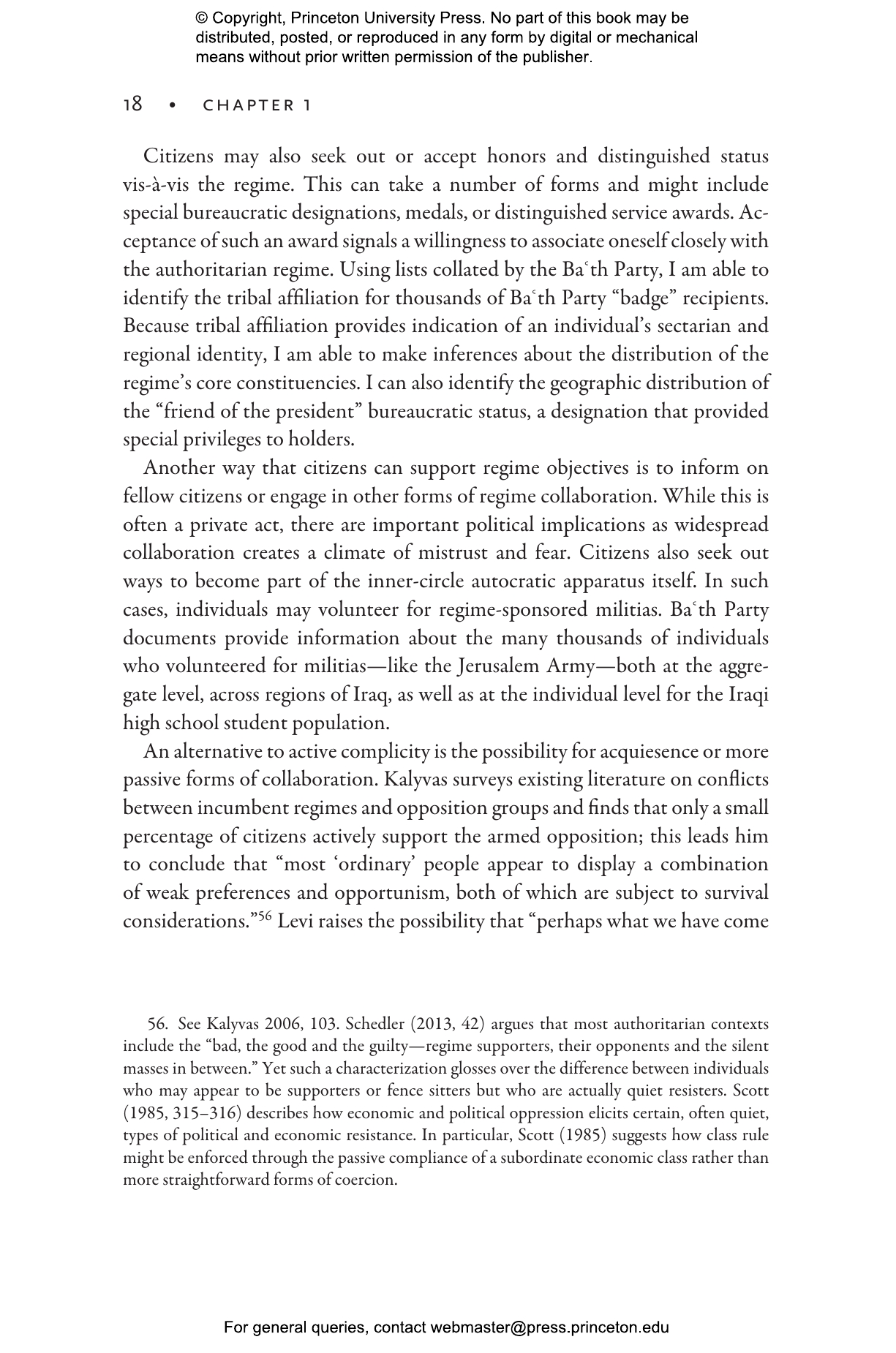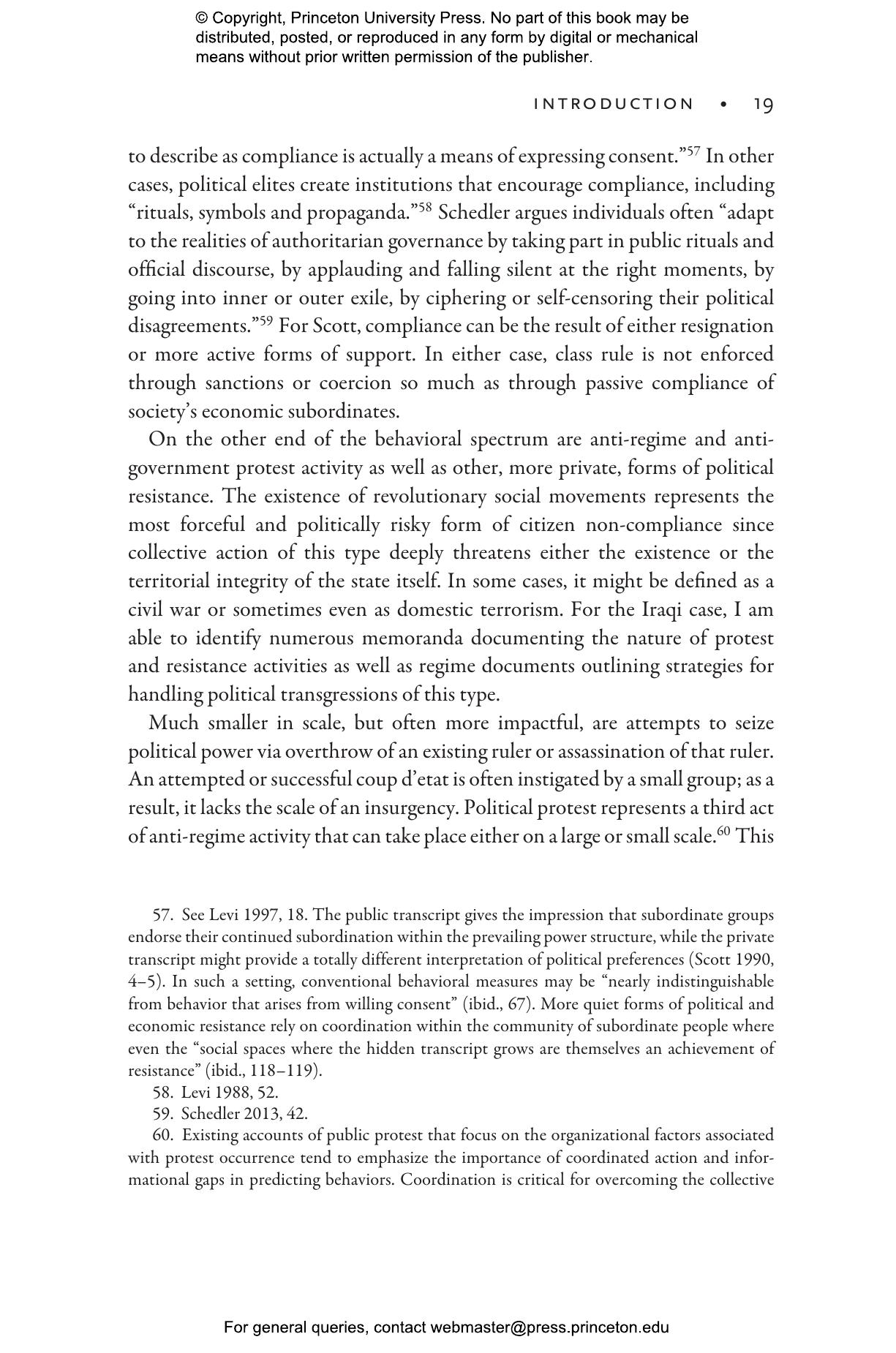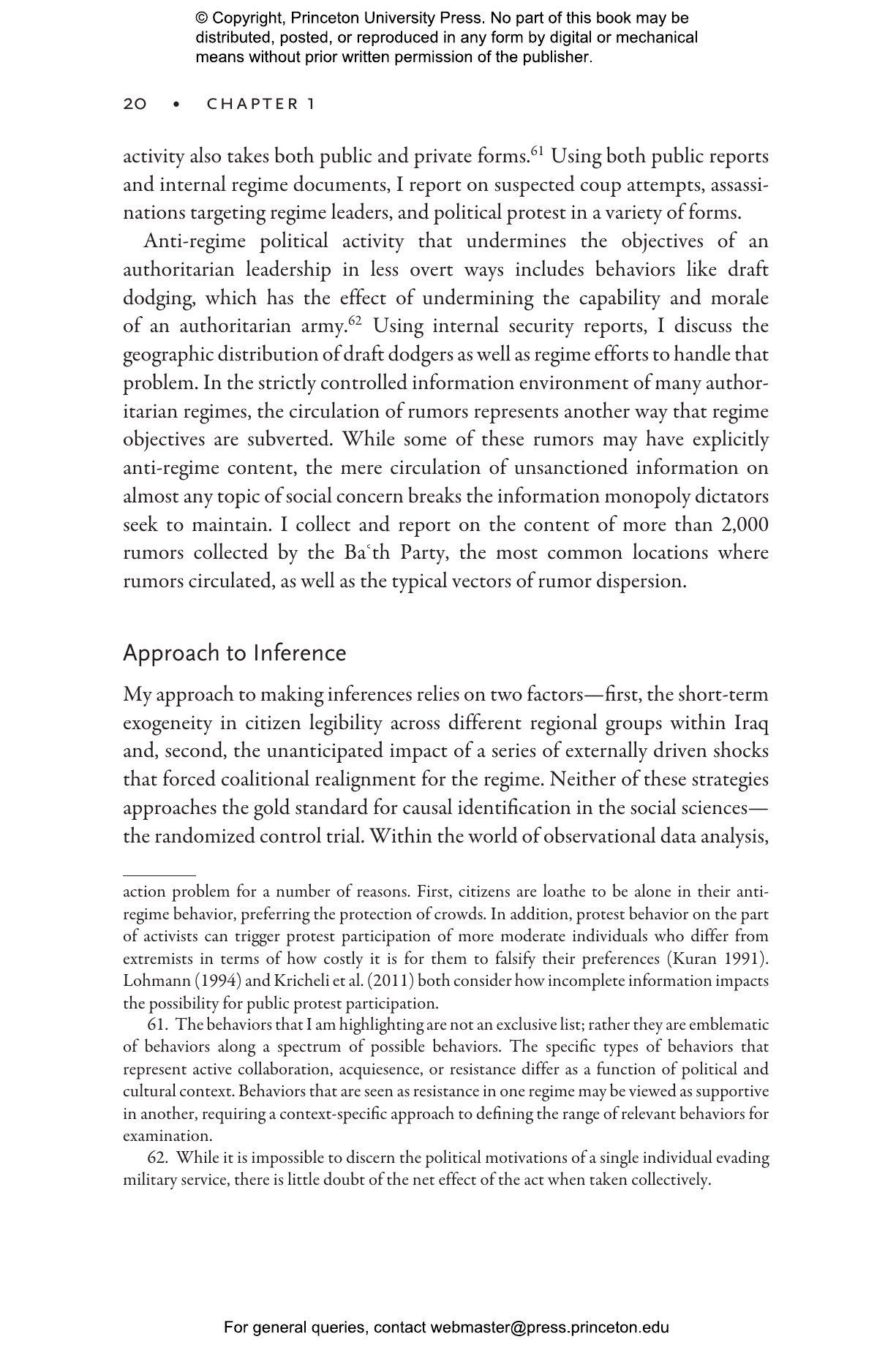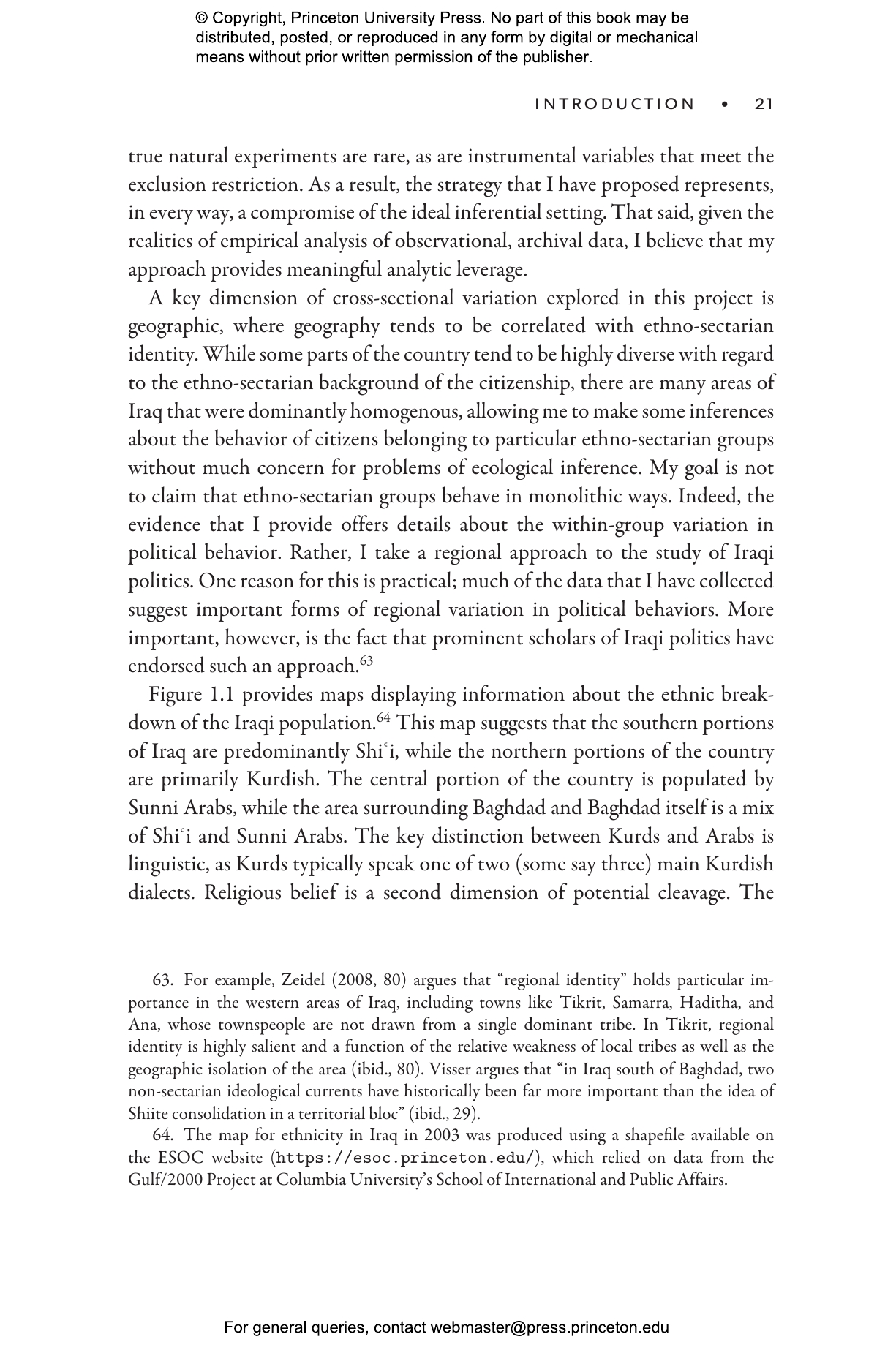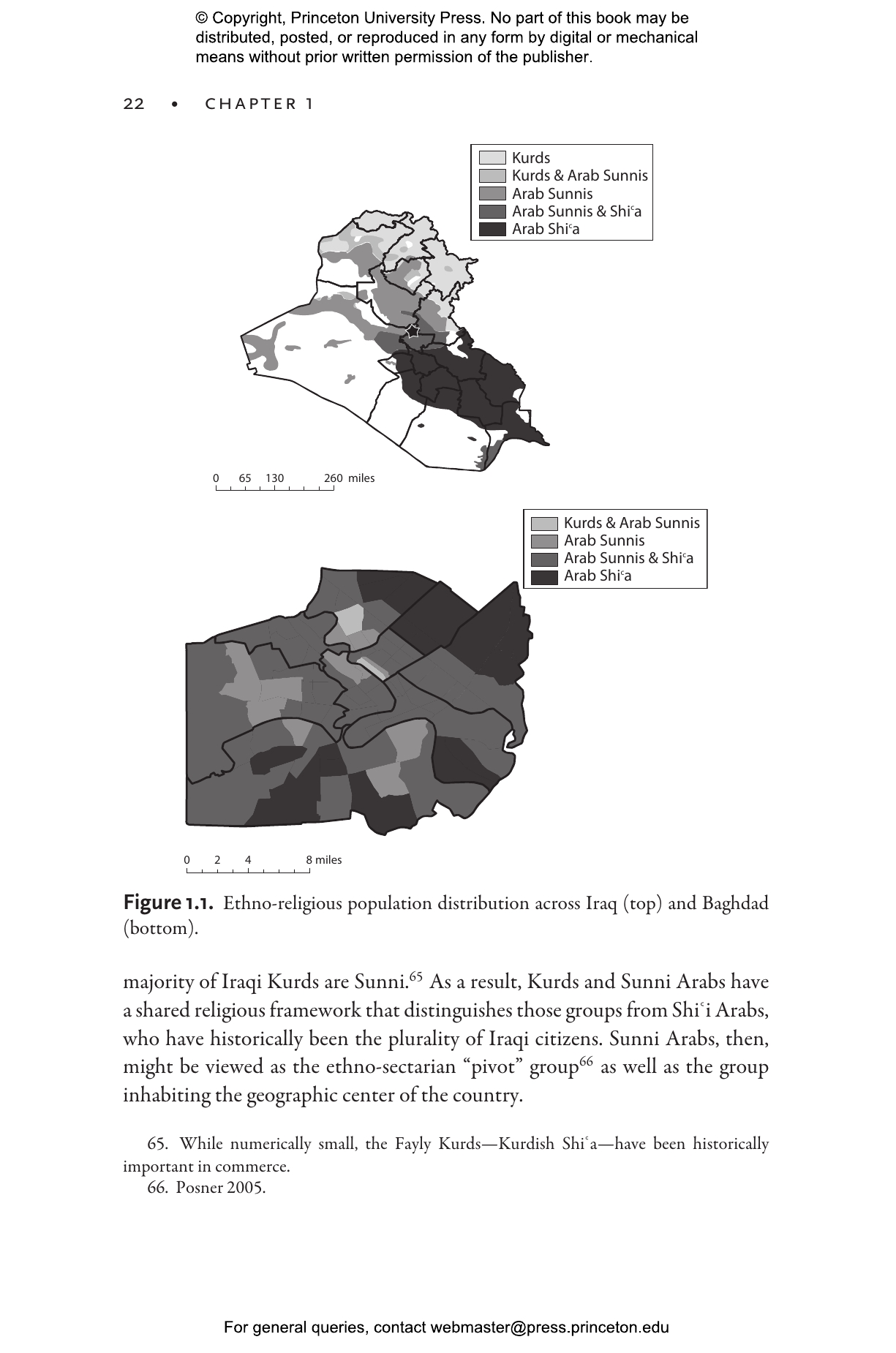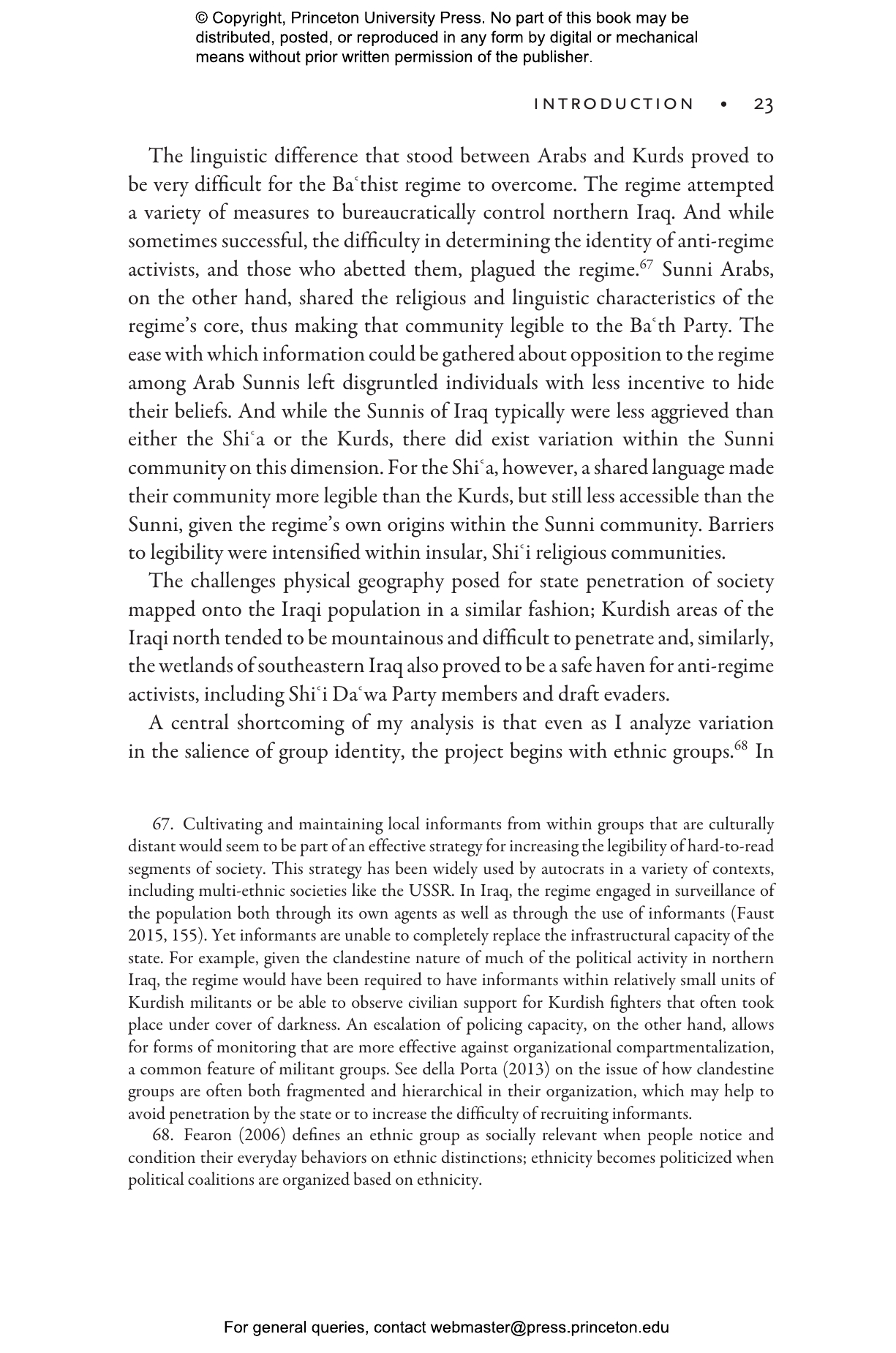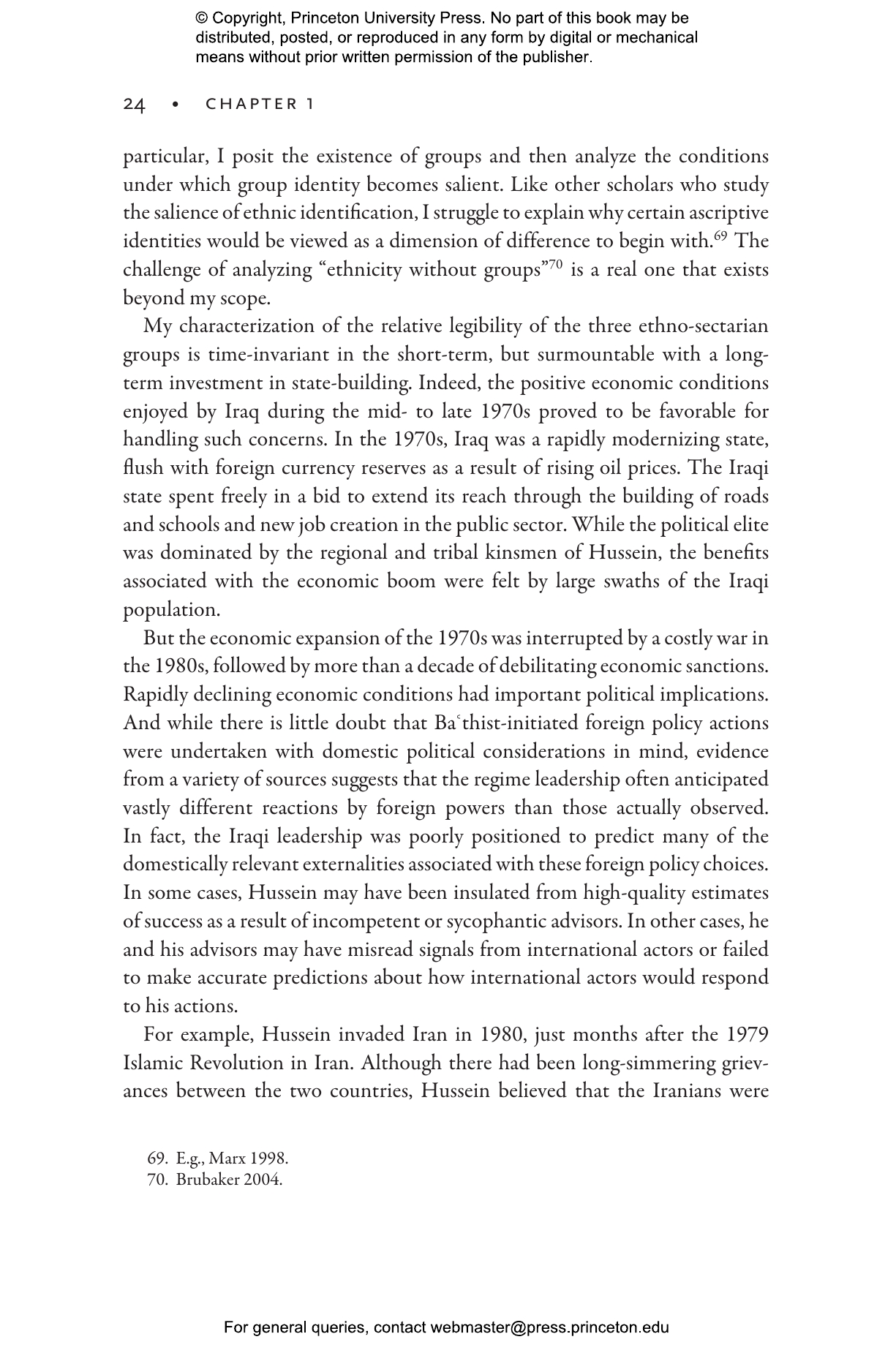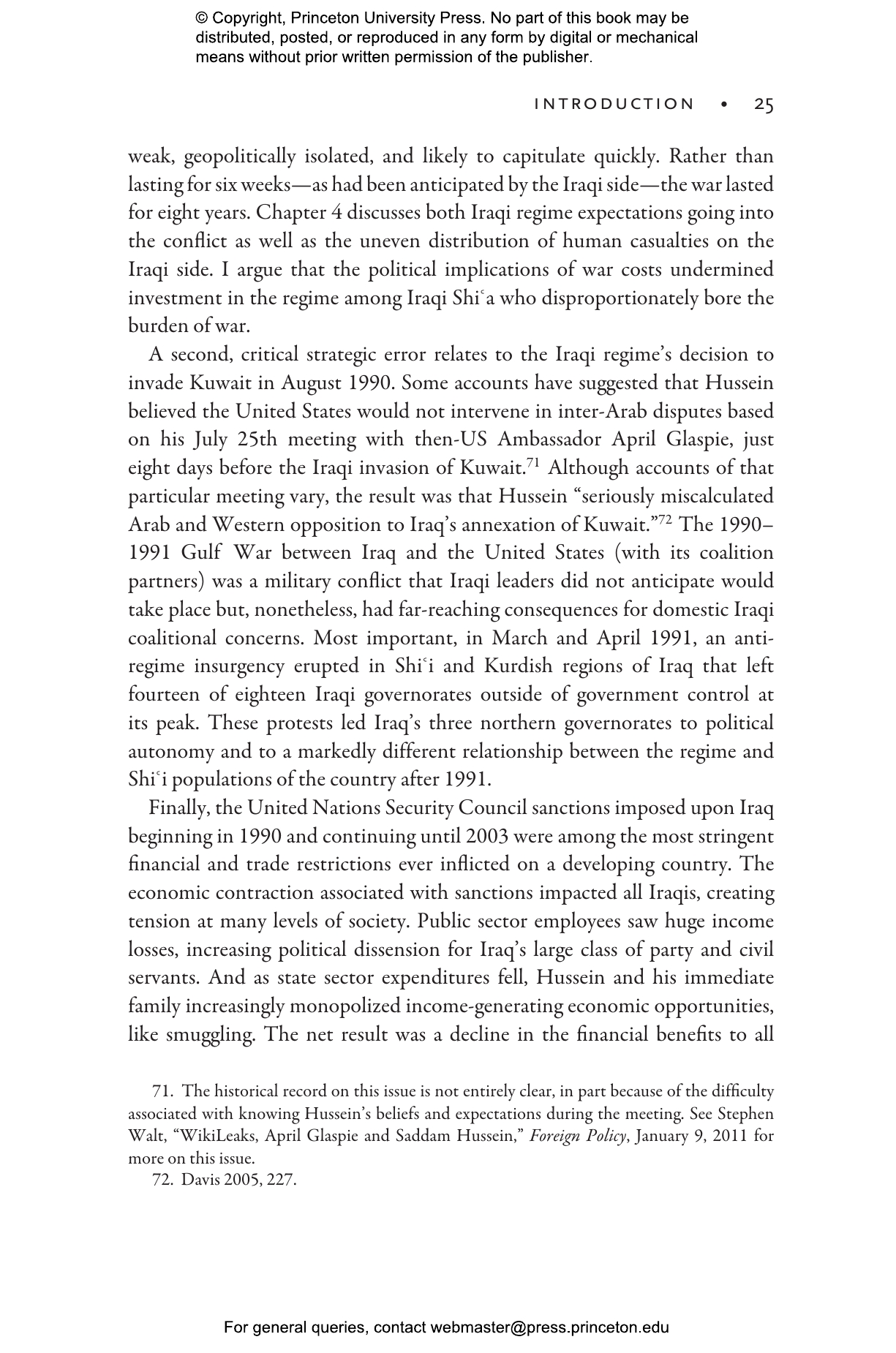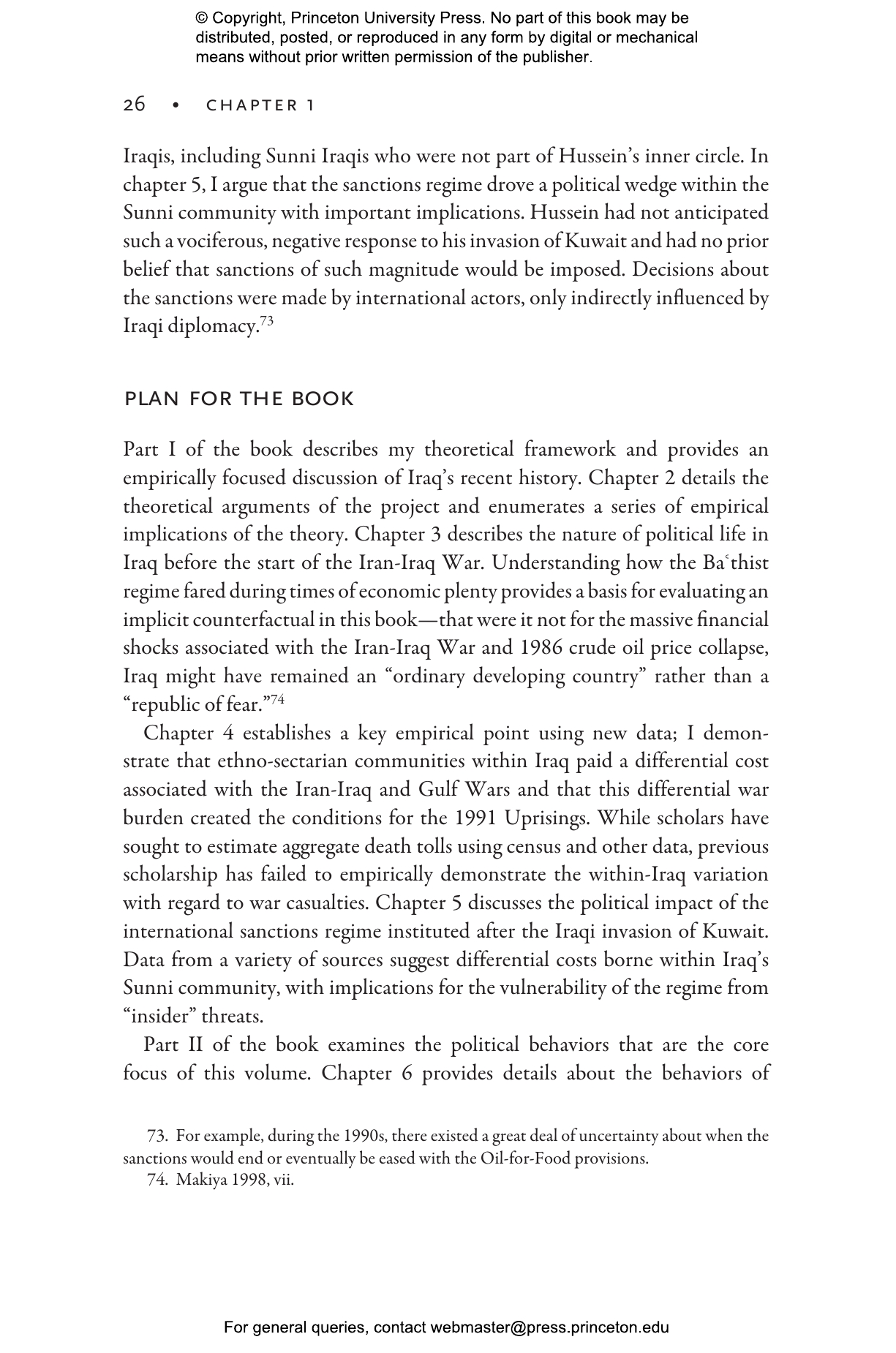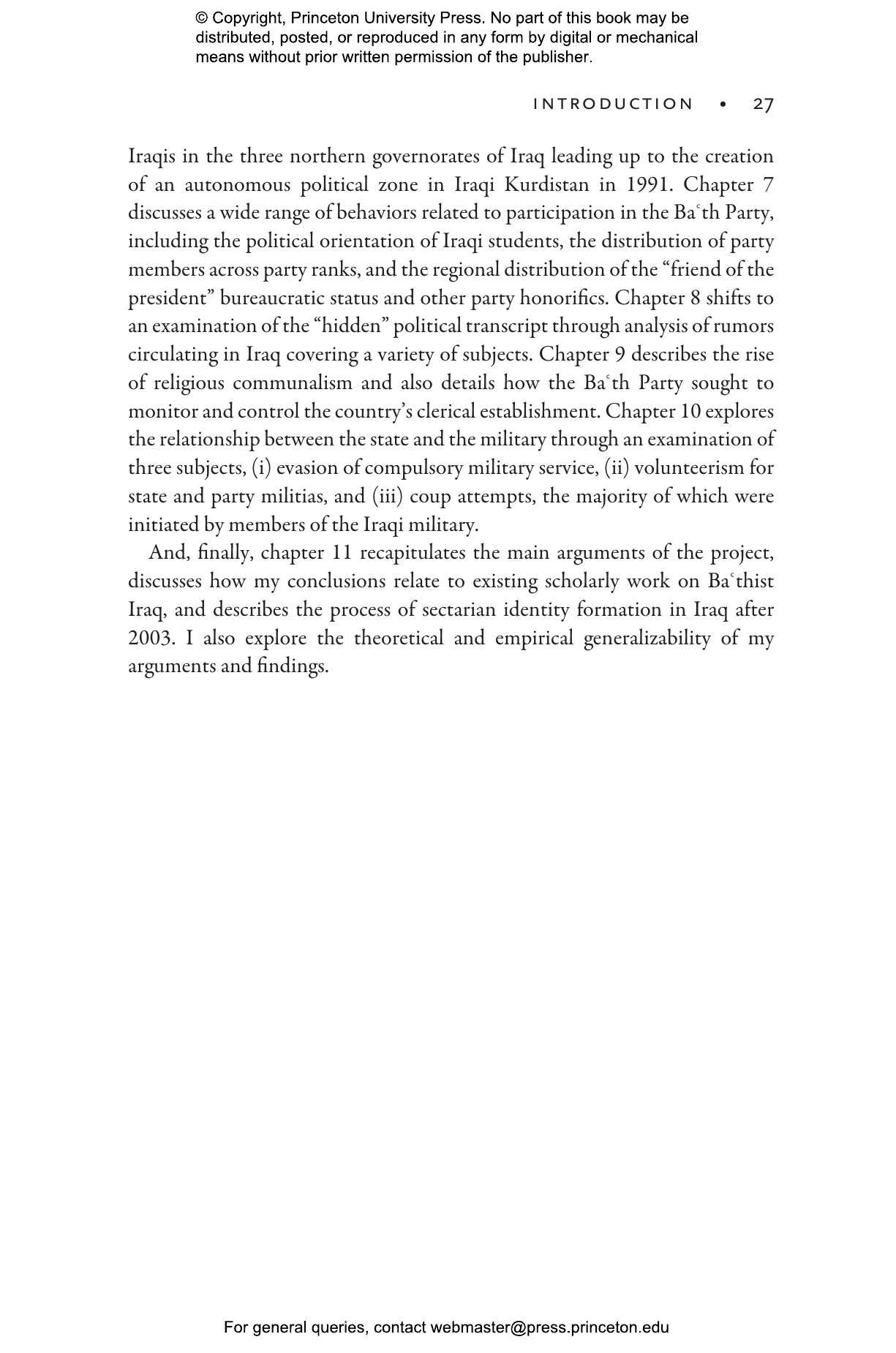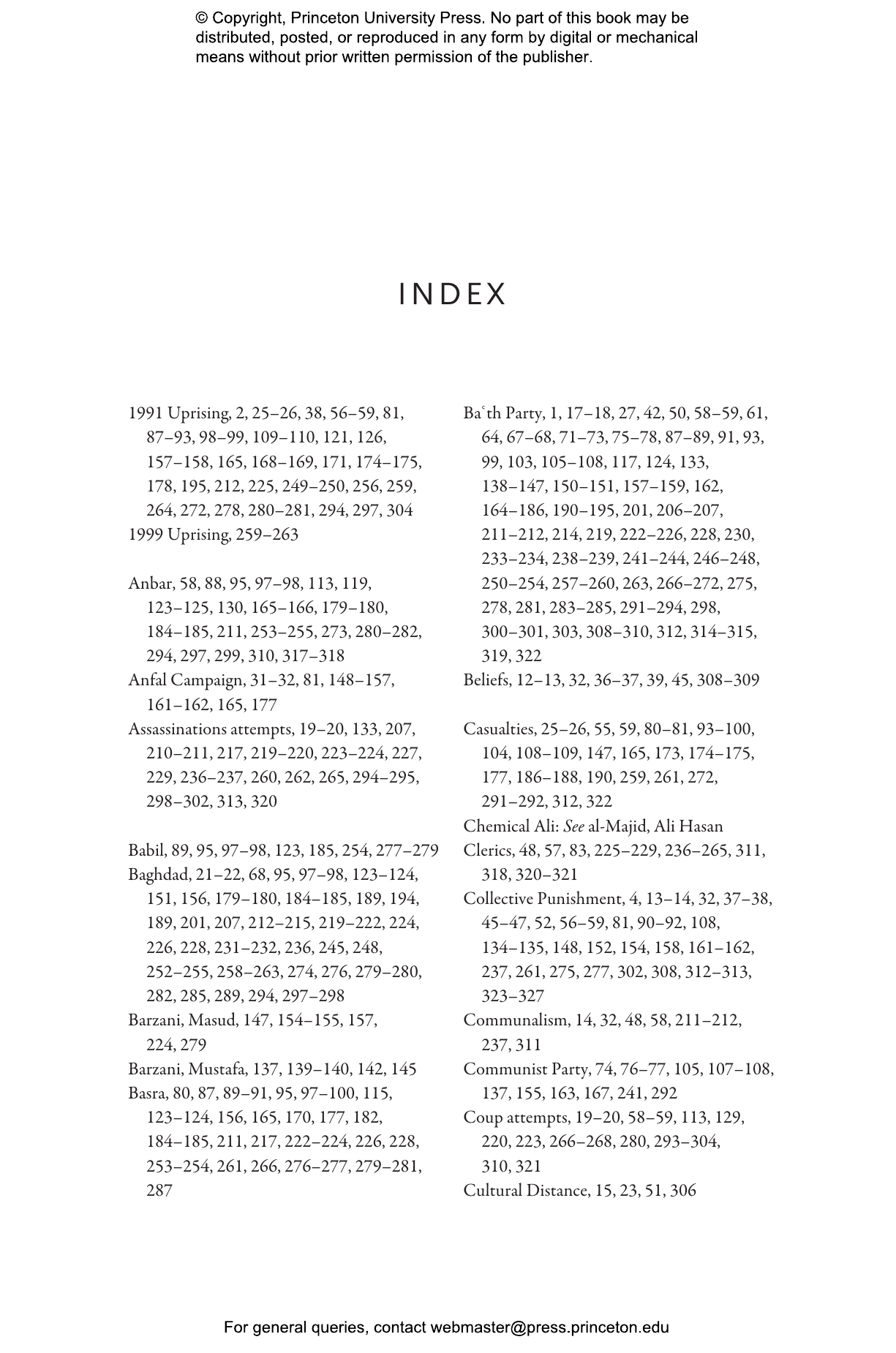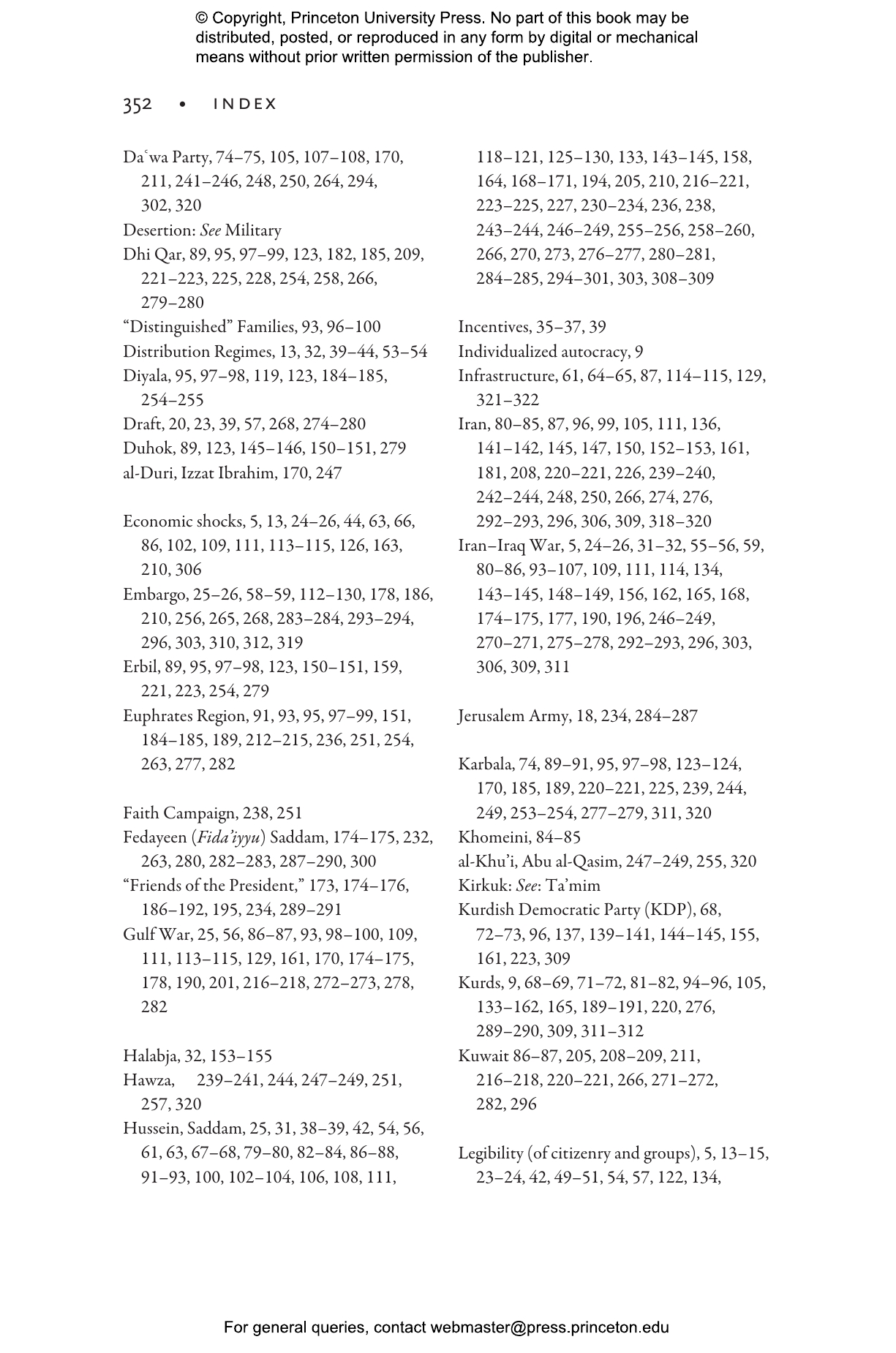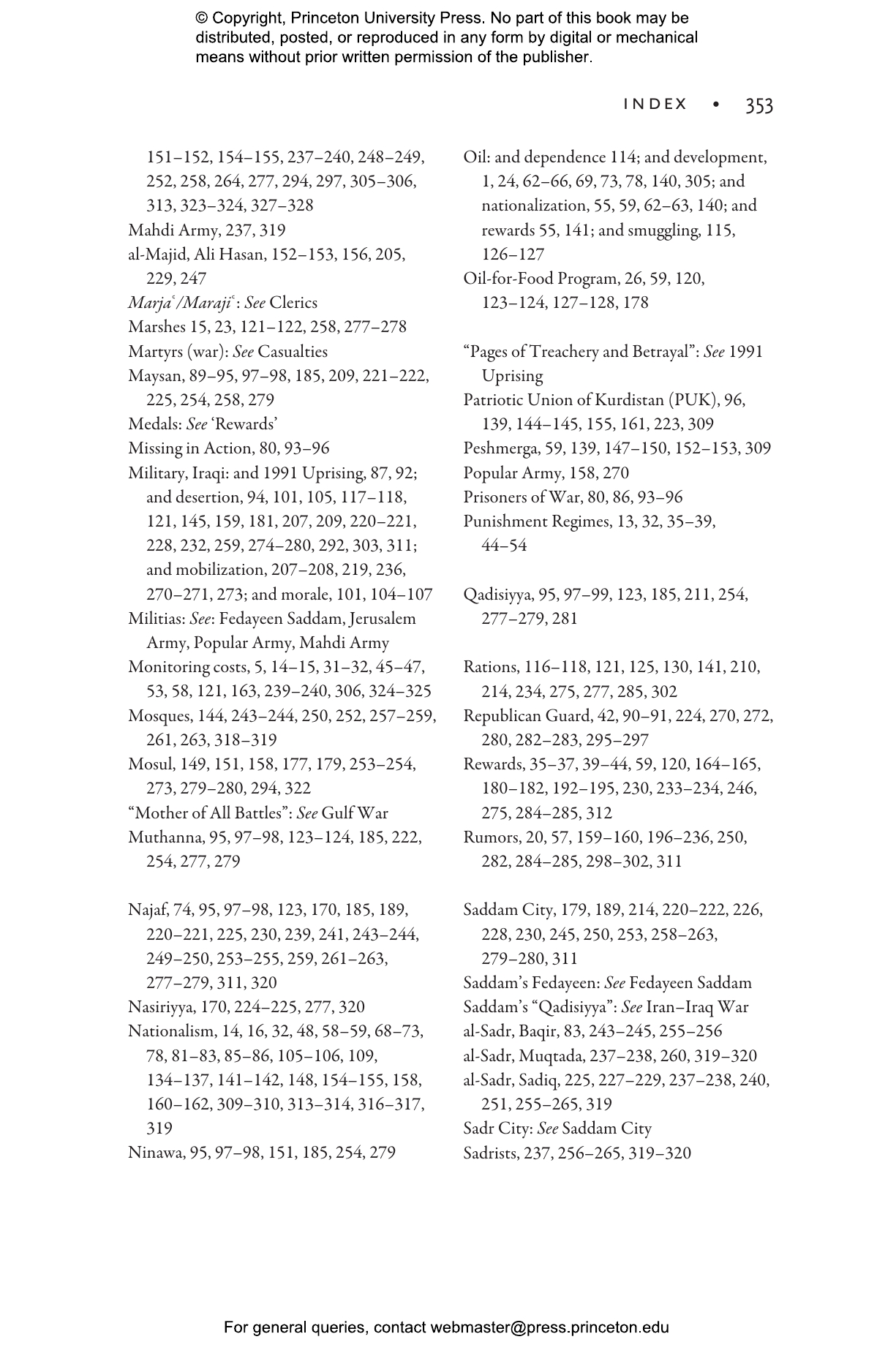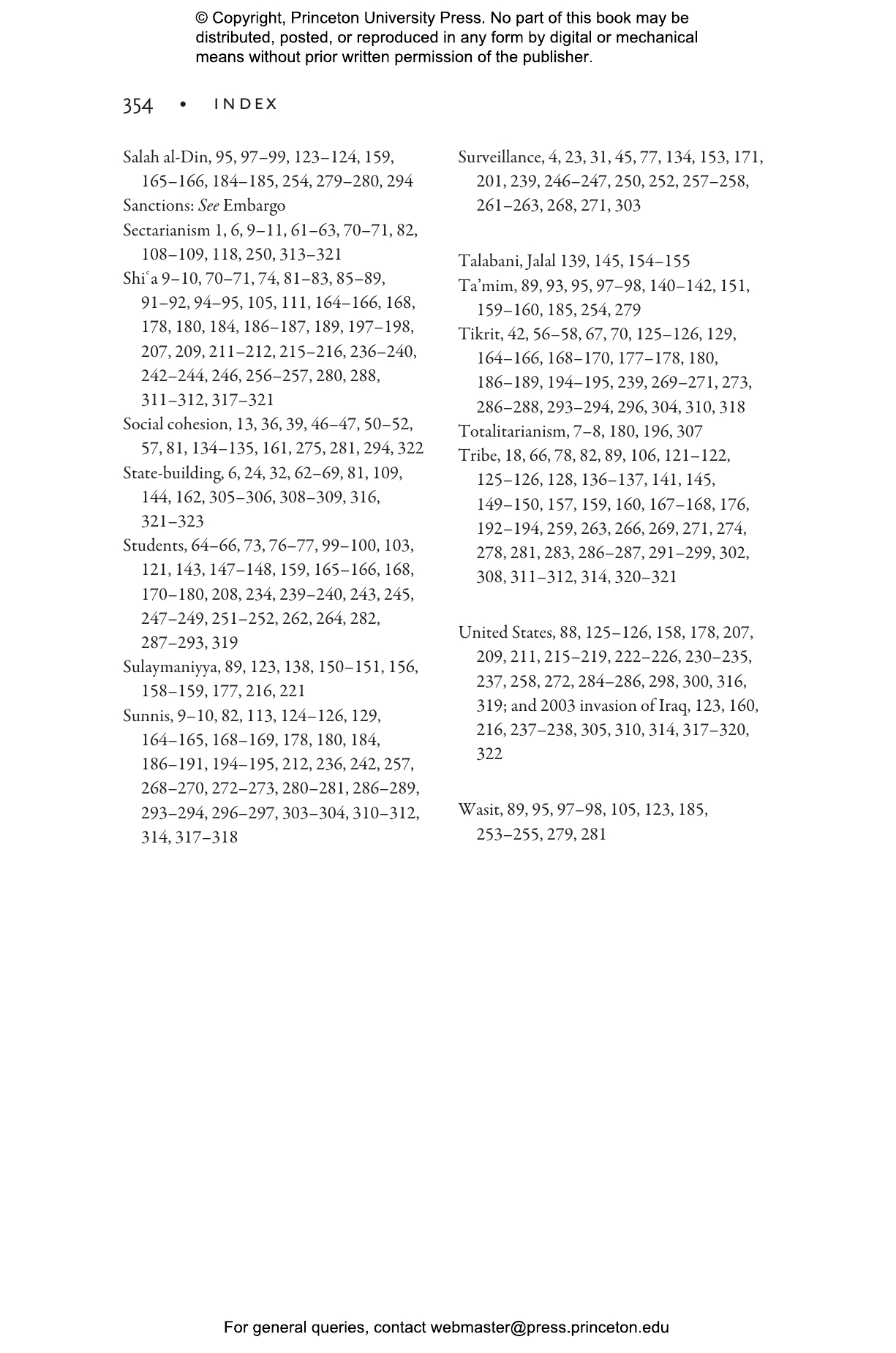How did Iraq become one of the most repressive dictatorships of the late twentieth century? The conventional wisdom about Iraq’s modern political history is that the country was doomed by its diverse social fabric. But in State of Repression, Lisa Blaydes challenges this belief by showing that the country’s breakdown was far from inevitable. At the same time, she offers a new way of understanding the behavior of other authoritarian regimes and their populations.
Drawing on archival material captured from the headquarters of Saddam Hussein’s ruling Ba’th Party in the wake of the 2003 US invasion, Blaydes illuminates the complexities of political life in Iraq, including why certain Iraqis chose to collaborate with the regime while others worked to undermine it. She demonstrates that, despite the Ba’thist regime’s pretensions to political hegemony, its frequent reliance on collective punishment of various groups reinforced and cemented identity divisions. At the same time, a series of costly external shocks to the economy—resulting from fluctuations in oil prices and Iraq’s war with Iran—weakened the capacity of the regime to monitor, co-opt, coerce, and control factions of Iraqi society.
In addition to calling into question the common story of modern Iraqi politics, State of Repression offers a new explanation of why and how dictators repress their people in ways that can inadvertently strengthen regime opponents.
Awards and Recognition
- Honorable Mention for the Luebbert Best Book Award, Comparative Politics Section of the American Political Science Association
- One of Choice Reviews' Outstanding Academic Titles of 2018
Lisa Blaydes is associate professor of political science and senior fellow at the Freeman Spogli Institute for International Studies at Stanford University. She is the author of Elections and Distributive Politics in Mubarak's Egypt.
"What a tonic Lisa Blaydes’s new book is. . . . Blaydes deserves a medal for a book that is impeccably researched and challenges so many myths with calm objective analysis. Her argument is one in the eye for those who say the modern state is incompatible with Islam."—Tim Stanley, Daily Telegraph
"It is out of the question that State of Repression is the product of very impressive scholarly research and analysis."—Sophia Hoffmann, Journal of Perpetrator Research
"Lisa Blaydes has hit a home run with her study of Iraq under Saddam Hussein. Meticulously researched and overflowing with original insights, this impressive volume is at once an in-depth account of Saddam’s nearly quarter-century of rule and a theoretically informed inquiry into the nature and societal impact of authoritarian rule more generally. Blaydes’s masterful book is essential reading both for students of Iraq and the Middle East and for students of authoritarian political systems."—Mark Tessler, University of Michigan
“Ever since Saddam Hussein’s fall, students of authoritarianism have been waiting to learn about the role of repression, patronage, and sectarian politics in sustaining his regime. Now we finally know: Lisa Blaydes brings the rigor of a social scientist to archival evidence of unprecedented scope and richness to give the most comprehensive analysis of the inner workings of Saddam Hussein’s regime to date.”—Milan Svolik, Yale University
“Lisa Blaydes provides a superb and analytically satisfying account of the workings of the curious clannish rule of the Ba’th in Iraq. The intricacies of its systems of exclusion and inclusion are laid bare in absorbing detail, making a good case for the lasting effect this has had on the present fractured landscape of Iraqi politics.”—Charles Tripp, professor emeritus, SOAS University of London
“A thorough account of what it was like to live under Saddam Hussein’s highly oppressive regime, Blaydes’s exceptional book also speaks broadly about the dynamics and effects of state repression, developing an elegant theory of how repression reinforces or undercuts shared political identities and facilitates or hinders mobilization against the state. The combination of careful quantitative analyses and rich qualitative material from relatively untapped Iraqi archives yields a convincing and absorbing account.”—Melani Cammett, Harvard University
“In State of Repression, Lisa Blaydes brilliantly exposes the subtleties of repressive politics. This is a formidable work that weaves an astonishing amount of data into a compelling narrative that captures the tragic reality of Ba’thist Iraq in all its complexity. An authoritative account that will remain unmatched for a long time to come.”—Hazem Kandil, University of Cambridge
"Drawing on fascinating original research about the inner workings of Iraq's Ba'thist regime, State of Repression enhances our understanding of authoritarian politics."—Amaney A. Jamal, Princeton University
"Using rich and original primary sources, this excellent book looks deeply at the case of Saddam Hussein's Iraq to develop a new theory of how cooperation and resistance emerge in oppressive political contexts."—Fotini Christia, Massachusetts Institute of Technology
